SHAWNFAQUA
Is Nollywood’s Shining Light

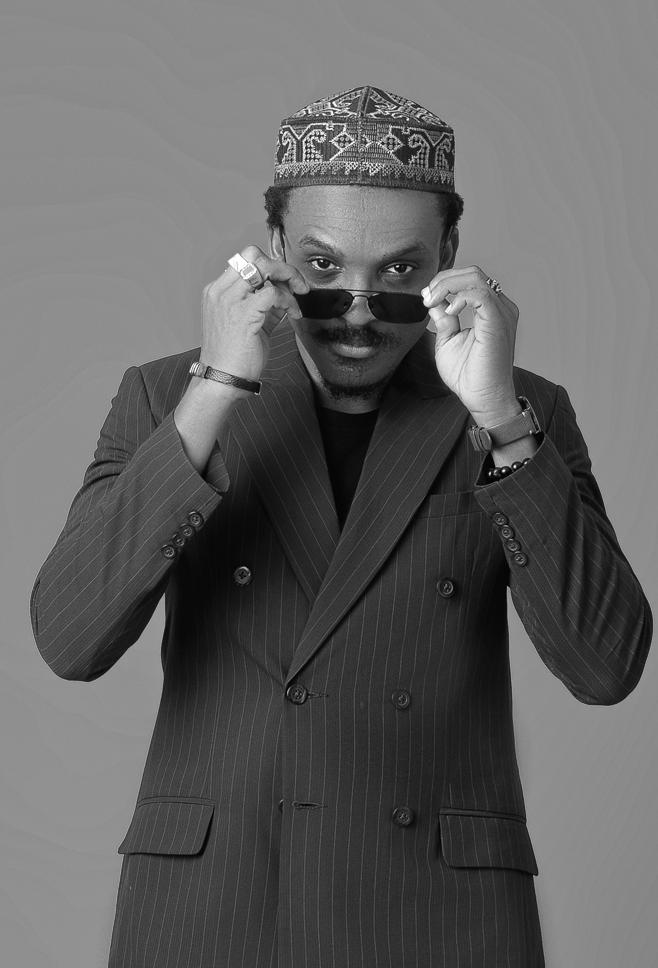
VOL 3 NO. 28 • JULY 09, 2023

VOL 3 NO. 28 • JULY 09, 2023 PAGE 2 THEWILL DOWNTOWN • www.thewilldowntown.com



PAGE 3 THEWILL DOWNTOWN • www.thewilldowntown.com VOL 3 NO. 28 • JULY 09, 2023
Methodacting is a technique not too many actors practice because of the intensity of the performance. It entails going into a dimension so deep in acting that it takes months to detox from the character the actor chose that technique for. Angelina Jolie used it to prepare for her character in the movie Salt, and it took her six months to detox from it. It is the same skill our cover personality, Shawn Faqua, uses for his characters, such that he has been dubbed the ‘Method Actor.’ Because of how intense he gets with the characters he portrays, he can only take so many in a year, plus Faqua also believes there is a spiritual element to acting. “There’s a spiritual element in what we do because these are creations that someone has created, and you have to live out these people’s lives, so it’s deeper than we think. What we do is one of the most spiritual works on earth because of the different dimensions we have to engage to bring the character to life.”
While not many would agree that acting has a spiritual element, it may be true for him because of his faith. Faqua is the convener of White Harvest Organisation, a community of believers with the goal to spread love and the gospel in the marketplace. For him, to strike a balance as a believer in the secular world of acting, you must first know who you are. This is what has kept him firmly grounded in Nollywood.
Read more about how he thinks believers can thrive in the entertainment industry and his new projects on pages 8 through 10.
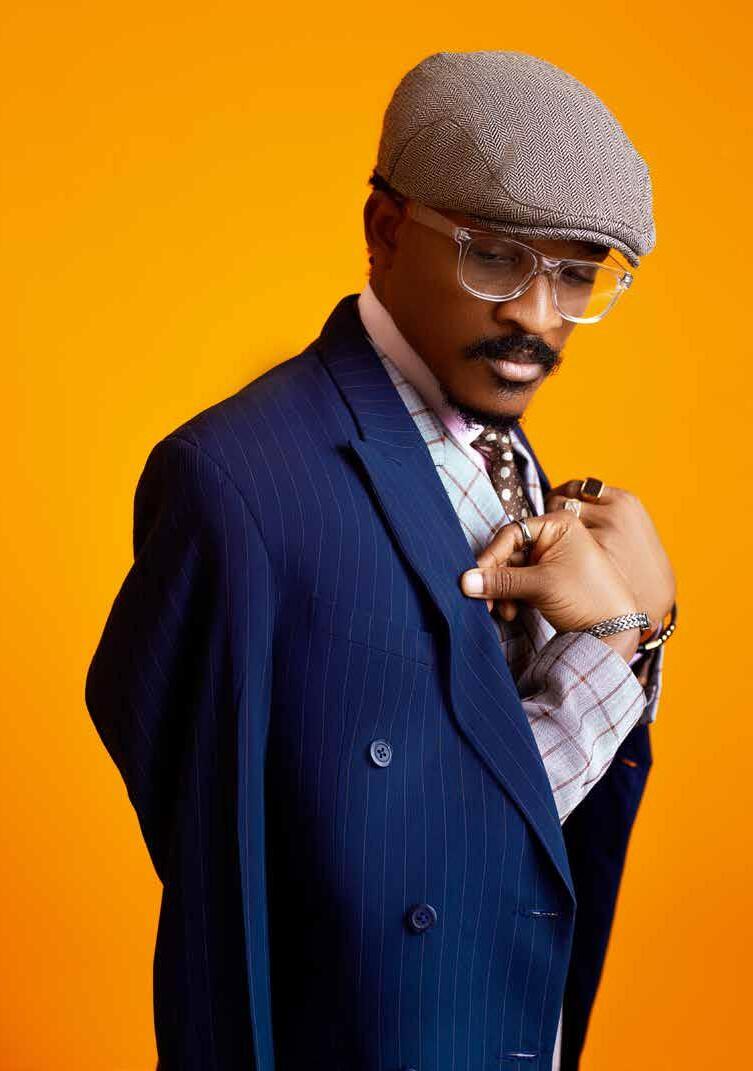
This week’s issue has some exciting articles. We talk about rediscovering intimacy after parenthood in Downtown Confidential. Our beauty page discusses simplifying your skincare routine, and we share tips on achieving a high-end look in your home for less.

Until next week, enjoy your read.
PUBLISHER/EDITOR-IN-CHIEF
Editor: Onah Nwachukwu @onahluciaa


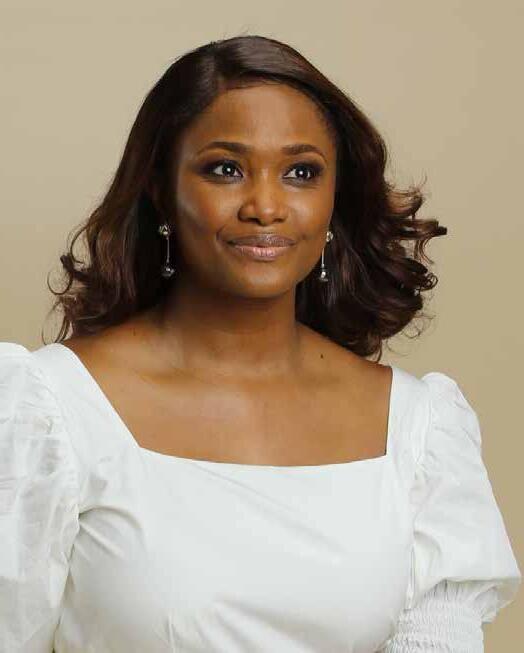

Editor-at-Large: Chalya Shagaya
Senior Writer: Kehindé Fagbule


Graphic Design: Olaniyan John ‘Blake’



Digital Media: Oladimeji Balogun
Guest Art Director: Sunny Hughes ‘SunZA’

Dorcas


Dorcas Akintoye is a dedicated writer with more than 2 years prolific experience in writing articles ranging from food, entertainment, fashion and beauty. She has a National Diploma in Mass Communication from Kwara State Polytechnic, Ilorin. She loves writing, listening to music and playing scrabble. She is a highly-skilled, enthusiastic, selfmotivated professional writer.
Onwumere Churchill Ikenna
- Contributing Writer





Onwumere Churchill Ikenna is a writer, poet, digital and social media content strategist. An Afro gen z clan member of kenga media. He is a movie critic who was amongst those who birthed the first movie brand; Feeem house brand. A full fledged member of the writers space Africa, Nigeria district and was part of the editing team of the second anthology issue by the writers space Nigeria.
He has written so many articles, stories and e books. An avid reader and a freelancer. You can check out his literary editing page @coidencreatives on Instagram and twitter.

His personal socials for both Instagram and twitter are : @ikennachurchill
I thought it was a movie
VOL 3 NO. 28 • JULY 09, 2023 PAGE 4 THEWILL DOWNTOWN • www.thewilldowntown.com www.thewilldowntown.com thewilldowntown thewilldowntown @onahluciaa + 2349088352246 Onah
Ogunbiyi @oddbodandthecity - Contributing Editor Odunayo Ogunbiyi is an ex pharmacist with a passion for food and pampering. Writing about her exploits wherever in the world she may find herself is just her way of staying sane in this zany world.
Adesina @bolugramm - Contributing Writer Boluwatife Adesina is a media writer and the helmer of the Downtown Review page. He’s probably in a cinema near you. Photo: Kola Oshalusi @insignamedia Makeup: Zaron CONTENTS Indiana Jones and the Dial of Destiny 06 8-10 16 14-15 12-13 11 REVIEW FEATURE FASHION ENTERTAINMENT CULTURE COVER The Role of Food in African Cultural Identity... Shawn Faqua Is Nollywood’s Shining Light Spotlight on Wumi Jubril Fashion For All Brands Embracing Diversity And Inclusion in Nigeria Decorating on A Budget How to Achieve High-End Looks For Less EDITOR’S NOTE 07 05 BEAUTY The Skincare Detox DOWNTOWN CONFIDENTIAL Rediscovering Intimacy After Parenthood AUSTYN OGANNAH
Odun
Boluwatife
SAID @it’s.prisy @mavviv INSTAGRAM
WHAT YOU
Akintoye
my favs @not_fareedah
GEN Z ATTRACTION
The Skincare Detox
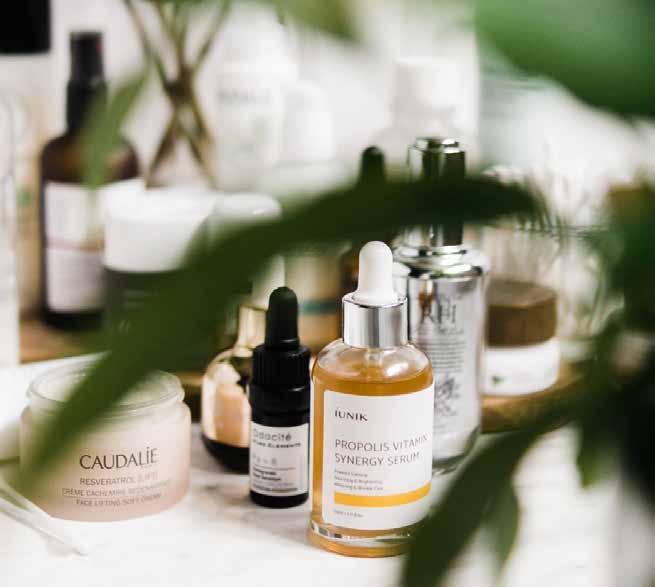
Simplifying Your Routine For Healthy, Happy Skin
BY DORCAS AKINTOYE
In a world where skincare aisles resemble treasure troves and beauty routines have grown to become complex chemistry experiments, it’s time to take a step back and simplify. Here, we will explore the mysteries of skincare and reveal a streamlined approach that will leave your skin radiant and your spirit rejuvenated. No more complicated routines, just simplicity and sensational results. Below are some essential tips for a simpler, happier skincare routine.
1. QUALITY OVER QUANTITY
Less is more when it comes to skincare. Limit the number of highquality cosmetics in your beauty routine to those that are effective for your skin type. Go for gentle cleansers, nourishing moisturisers, and targeted treatments that address your specific concerns. One unique benefit of investing in quality products is that you’ll only need fewer of them, saving you the stress of spending money on several skincare products only to be left with lacklustre results.
2. KNOW YOUR SKIN
Understanding your skin is one of the secrets to streamlining your skincare regimen. Choose items suitable for your skin type (oily, dry, combo, or sensitive). Using beauty products meant for your skin type helps treat your skin needs effectively, eliminating the need for multiple products that may even worsen your

3. MULTI-TASKING MARVELS
Go for multi-tasking products that combine multiple benefits in one. For example, a moisturiser with SPF protects your skin from the sun and, at the same time, provides your skin with the hydration it needs. A tinted moisturiser can also act as a foundation, simplifying your makeup routine. Finding these versatile gems helps save time, space, and effort.
5. HARNESS THE POWER OF NATURE
Look for all-natural components that will simplify your skincare routine while producing amazing results. Aloe vera, rosehip oil, and green tea are just a few examples of ingredients that offer a variety of advantages without the need for intricate formulas. Opt for products with simple and clean ingredient lists to detoxify your skincare routine.
6. SELF-CARE WITH MASKS
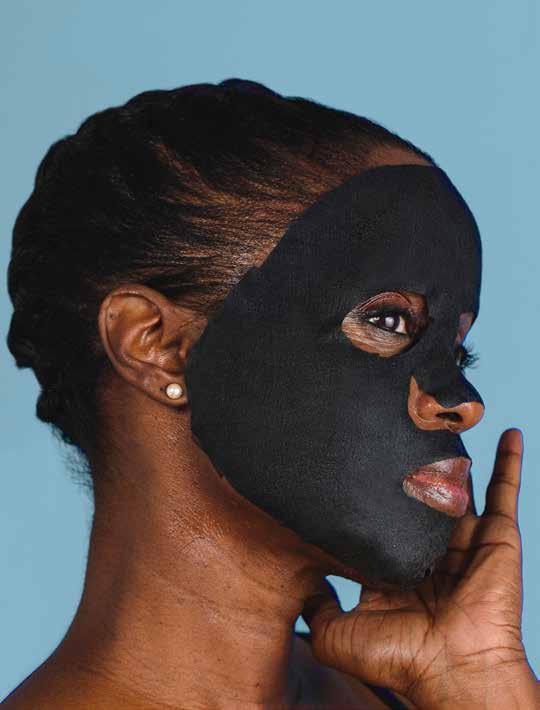
For a pampering yet simplified experience, incorporate weekly masking sessions into your routine. Go for masks that address your skin concerns, such as hydrating masks for dry skin or detoxifying masks for congestion; the list goes on and on. This routine helps you in focusing on self-care while at the same time keeping your skincare routine efficient.
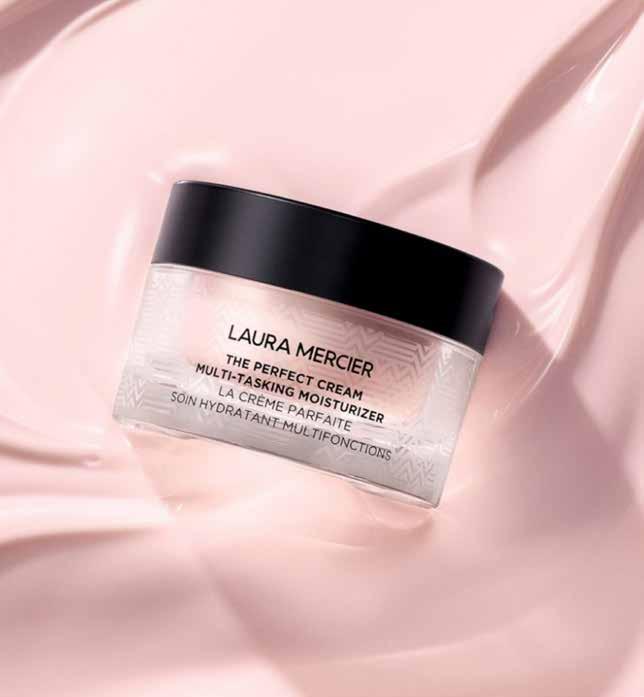
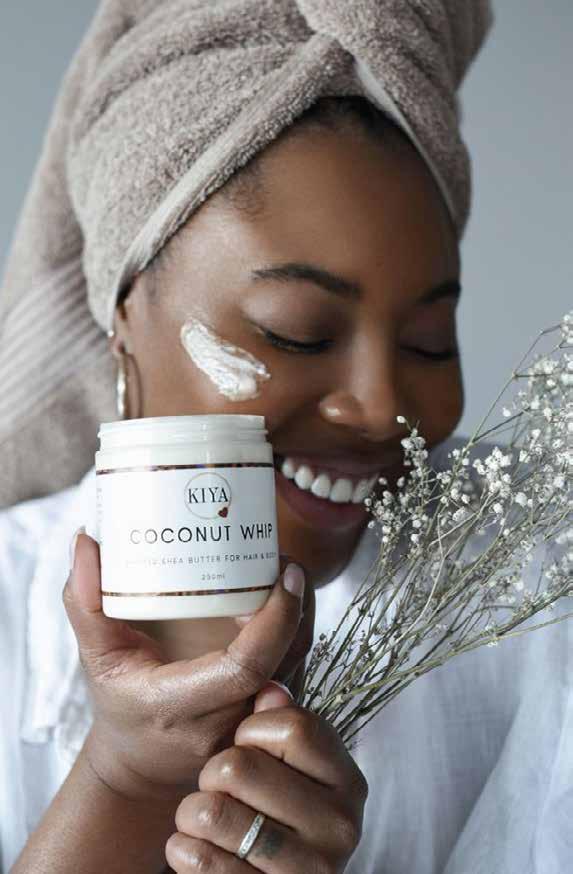
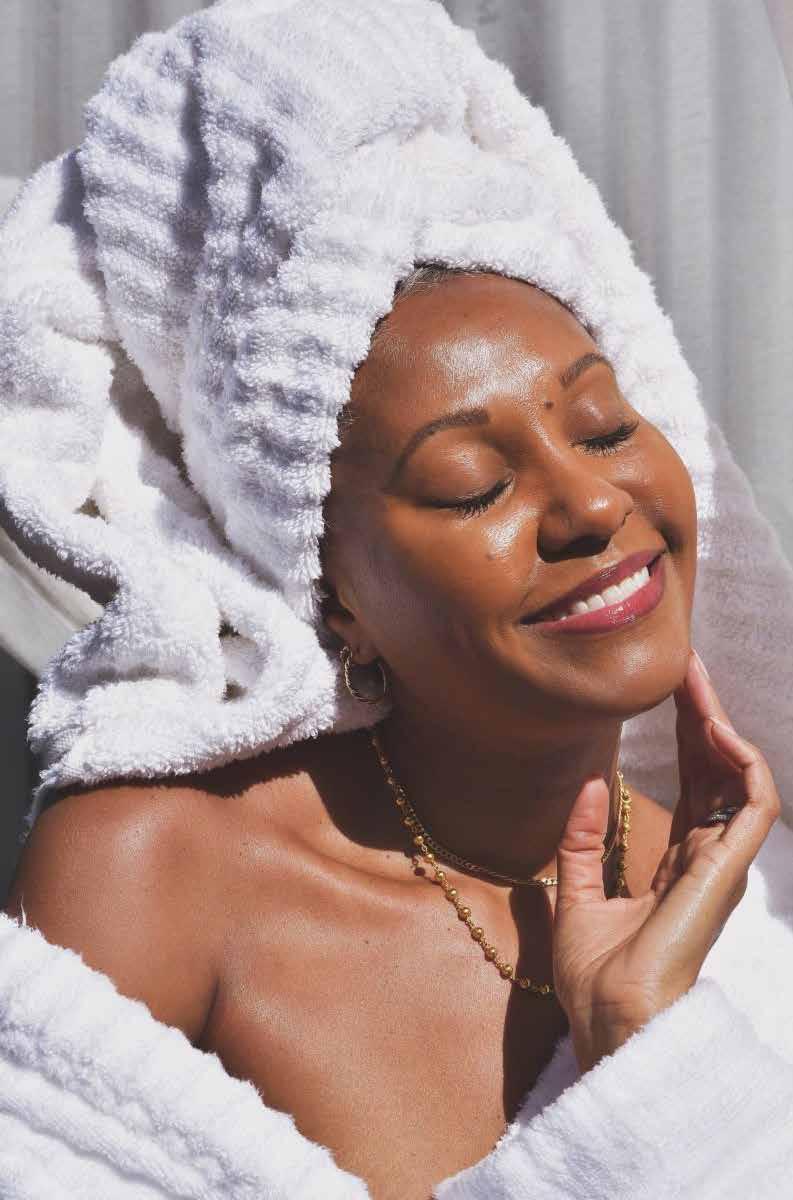
4. EMBRACE MINIMALISM
You can streamline your routine by focusing on the essentials; cleanse, moisturise, and protect. Stay away from unnecessary steps or products that do not serve a specific purpose. Your skin will surely appreciate you for the simplicity and the reduced risk of irritation.
By following these simple yet effective tips, you can streamline your skincare routine, embark on a path to healthier, happier skin, and experience a newfound sense of freedom and self-care. It’s essential to be aware of your skin’s demands and give it the care and attention it requires; you don’t need to use a variety of products or follow elaborate rituals.
When you accept the idea of a skincare detox, your routine will become easier, and you’ll have more time.

PAGE 5 THEWILL DOWNTOWN • www.thewilldowntown.com VOL 3 NO. 28 • JULY 09, 2023 BEAUTY
The Role of Food in African Cultural Identity And Expression
BY IKENNA CHURCHHILL
Food is life, and our body needs energy; this energy is obtained from the food we eat. Food doesn’t have a solid definition as it is something produced from nature that is mainly refined for intake.
Food travels across cultures with ease more than anything else. Every African culture has its way of preparing or producing food. Each culture’s food plays a huge role as we can use it to identify that particular culture from others. It is a huge sign of expression for that culture and tells a massive story for them.

rice, plantain porridge, yam porridge, vegetable sauce, beans, stew and rice, fried rice, etc.
The Igbo dishes are how they identify and express themselves regarding food.

Food plays a significant role in the cultural identity and expression of Africans. African cuisine is diverse and reflects the continent’s rich history, traditions, and cultures. Food is not just a means of sustenance; it is a way to express identity, share stories, and connect with one’s community. Food is central to many African cultures’ social gatherings, celebrations, and religious ceremonies. The way food is prepared and served is often an essential aspect of these events.
African cuisine varies significantly from region to region, with each area having unique dishes and cooking methods. For example, West African cuisine is known for its use of spices, sauces, and stews. In contrast, East African cuisine features a variety of vegetarian dishes, including injera, a sourdough flatbread made from teff flour.
The role of food in African culture extends beyond the kitchen. In many African countries, farming and agriculture are ways of life, and food is closely tied to the land and its people. Many African societies have traditional farming practices passed down from generation to generation. These practices help sustain the land and preserve cultural traditions and identities.
In Africa, our food travels beyond, and it’s sought after. The diversity of our food is in each tribe; imagine hundreds of tribes that have a unique way they produce their food and make it for consumption.
In Nigeria, there are so many tribes, and they all have the specific type of food they make and produce. This plays a massive role in identifying them. When you travel to the Igbo culture, you will be met with different kinds of cuisine like Ofe nsala, oha soup, Okazi soup, egusi soup, ogbono soup, ofe owerri, okro, vegetable soup, ukwa, roasted yam and oil (New yam festival), etc. Notwithstanding, the other dishes that Nigerians make include Jollof
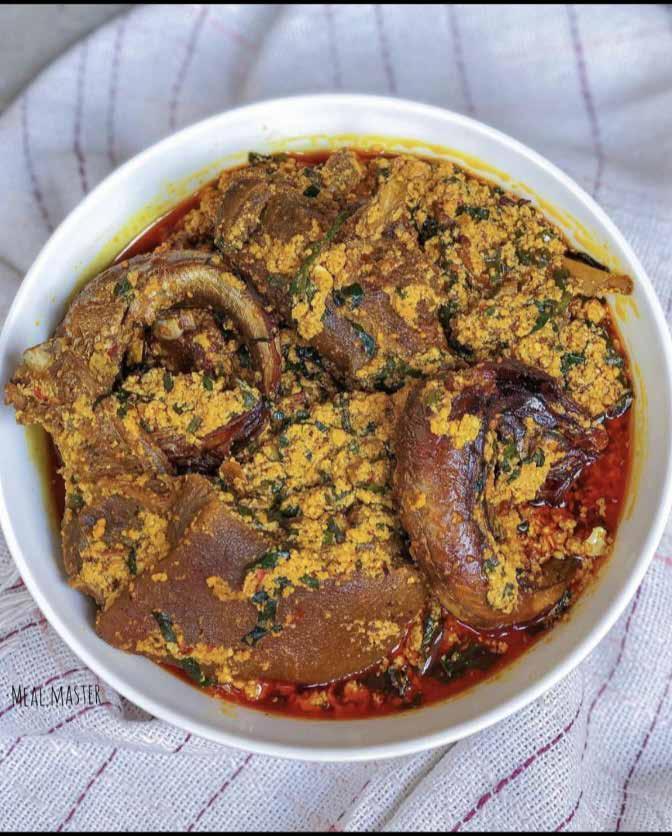
Furthermore, African cuisine has significantly influenced the food culture of other regions of the world. For example, many dishes that originated in Africa, such as jollof rice, have become popular in the Caribbean, and African spices and flavours have been incorporated into the cuisine of many other cultures.
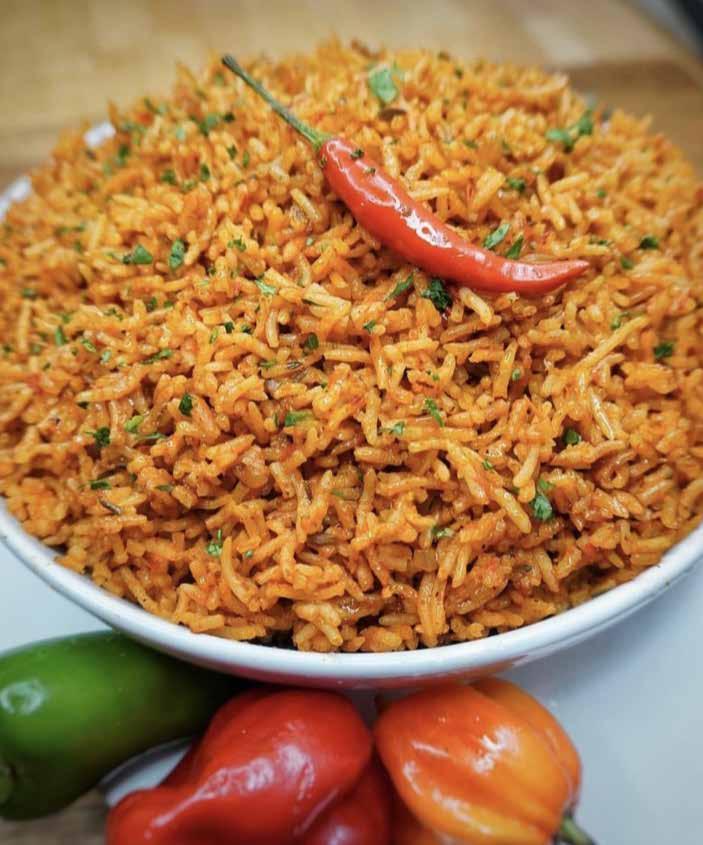
In conclusion, food is an essential part of African culture and identity. How Africans prepare, serve, and enjoy food reflects their unique history, traditions, and values. Africans express their connection to the land, their communities, and their heritage through their cuisine.
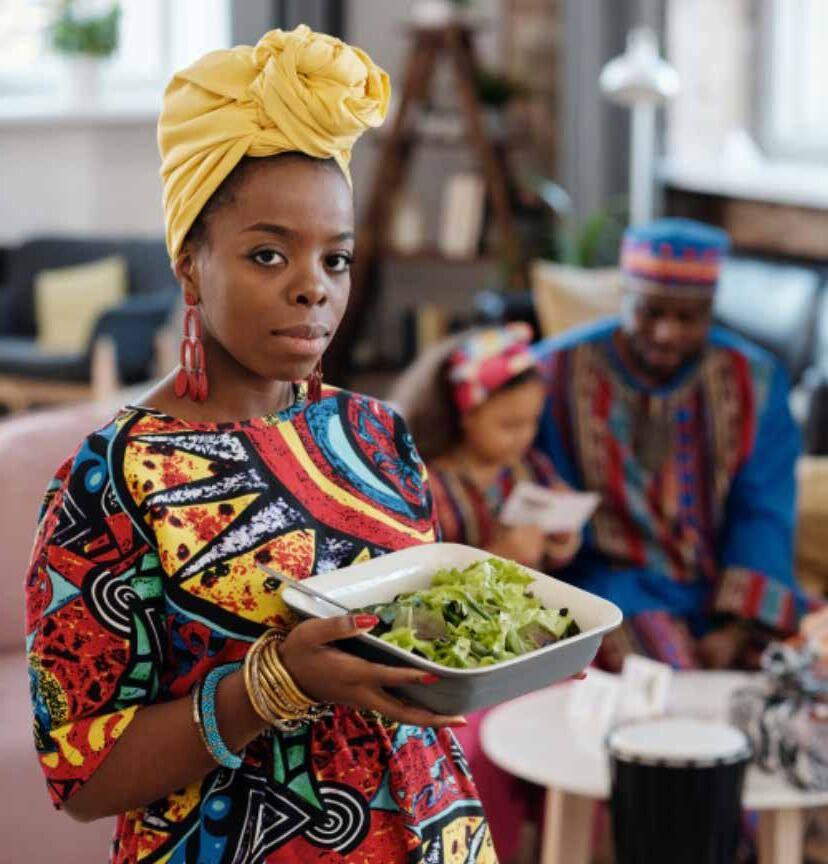
VOL 3 NO. 28 • JULY 09, 2023 PAGE 6 THEWILL DOWNTOWN • www.thewilldowntown.com CULTURE
Rediscovering Intimacy After Parenthood

 BY DORCAS AKINTOYE
BY DORCAS AKINTOYE
Becoming a parent is an extraordinary journey filled with sleepless nights, tender moments, and an overwhelming love that knows no bounds. The arrival of a little bundle of joy brings happiness and a sense of fulfilment; at the same time, it can also bring significant changes in a couple’s lifestyle and relationship. Even with the beautiful chaos of parenting, many couples still find themselves longing for the intimacy that once existed between them. They yearn to reconnect on a deeper level.
Rediscovering intimacy after parenthood is a delicate dance that requires you to navigate the uncharted waters of love and parenthood simultaneously. It’s a journey that many couples embark on with the desire to maintain a strong bond while fulfilling their functions as dedicated parents. Parenthood comes with a lot of hard work and responsibilities that leave little room for romantic gestures and heartfelt conversations, which is why couples must find a balance that nurtures their love for each other and their commitment to their children. With intention and effort, you can reignite the flame of love while finding a harmonious balance between being a parent and a partner.
(3) SHARE RESPONSIBILITIES
Parenting is not a one-man job, which is why you both need to divide and conquer household chores, childcare duties, and other responsibilities. Doing this will not only alleviate the burden on each individual but will also help in fostering a sense of collaboration and support, providing you with more time and energy to devote to your relationship.
(1) PROITIRISE QUALITY TIME
You need to carve out dedicated quality time for yourself and your partner, no matter how exhausting parenting can get. You can start by scheduling date nights or quiet evenings at home to reconnect and strengthen your bond. Put away distractions, engage in meaningful conversations, and simply enjoy each other’s company.

(2) COMMUNICATE OPENLY AND
The cornerstone of any successful relationship is effective communication. Develop the habit of expressing your feelings, concerns, needs, and desires to your partner. Parenthood comes with its fair share of stress and challenges, so you must maintain an open communication line with your partner. Communicating effectively can help you support one another through the ups and downs of parenting.
(4) NURTURE PHYSICAL
One of the powerful tools to reconnect with your partner is physical touch. You can reignite the spark between you and your partner with simple gestures like hugs, kisses, and holding hands. Never look down on the power of non-sexual physical intimacy because that can help you feel closer and more connected daily.

(5) MAINTAIN INDIVIDUAL INTEREST
Even though parenting is a shared journey, you need to retain a sense of visuality and encourage each other to pursue personal interests and hobbies outside of parenthood. Doing this will not only help develop yourself and your partner’s personal growth but will also help bring fresh topics of conversation and new experiences to share with your partner.
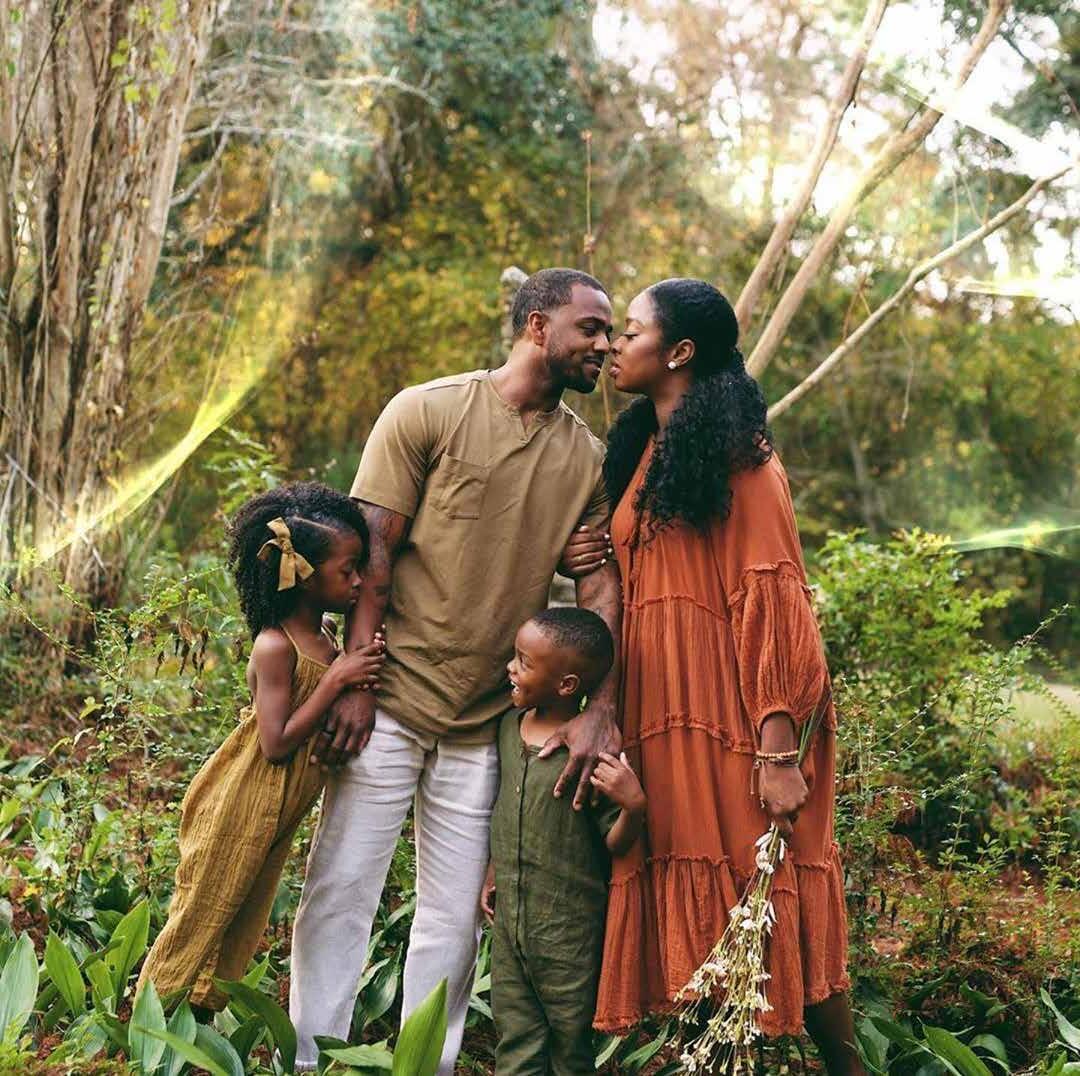
(6) SEEK SUPPORT
Do not be afraid to seek help when needed. Reach out to your family, friends, or professionals if needed. Doing this can help provide you with guidance, reassurance, and practical assistance. Seeking support demonstrates strength and, most importantly, reinforces the foundation of your relationship.
(7) INTIMACY BEYOND THE BEDROOM
Intimacy goes beyond the bedroom, which is why you and your partner need to find ways to reconnect emotionally and intellectually. By engaging in activities you both enjoy, having meaningful conversations, and creating shared experiences, you can strengthen your emotional bond and deepen your connection.


Rediscovering intimacy after parenthood is a process that requires lots of patience, understanding, and dedication. You can strike a balance between love and parenthood by prioritizing quality time, communicating openly and honestly, sharing responsibilities, nurturing physical affection, maintaining individual interests, seeking support, and embracing different dimensions of intimacy. Remember, a thriving relationship is not only beneficial to you alone but also helps create a loving and stable environment for your children to grow in. Embrace the adventure, and let love and parenthood coexist beautifully in your life and relationship.

PAGE 7 THEWILL DOWNTOWN • www.thewilldowntown.com VOL 3 NO. 28 • JULY 09, 2023
DOWNTOWN CONFIDENTIAL
SHAWN FAQUA
IS NOLLYWOOD’S SHINING LIGHT
Thetheory of oil combining with water to create a blemished mixture applies to most parts of our lives. It is similar to the polarising relationship between light and darkness; even though the two concepts don’t see eye to eye, as powerful as the light is to illuminate any given space, its worth as a guide is more appreciated when called upon to eliminate darkness. Believers know this too well, and although the conversation on what spaces Christians should occupy takes a different form each day, taking from the oil-water and lightdarkness analogies, the clarification on what is acceptable is still no consensus ad idem. Especially in the very secular world of arts and entertainment, where is a believer’s place?
Starring in the latest Amazon Prime Original, House of Secrets, multi-talented creative, Shawn Faqua has been in the media’s keen eyes for his hearty interpretation of the characters he’s presented with. Since his foray into Nollywood, his roles in top titles such as Living in Bondage, SOÓLÈ, and The Trade, to name a few, have built and sustained a fanbase that is as committed to his portrayed characters as they are to him as an actor thanks to a style of acting he employs that is so rare on display, the method acting. In a heartfelt lengthy conversation with DOWNTOWN’s Kehindé Fagbule, the seasoned actor talks about the method of acting that puts Hollywood on a higher pedestal than ours and navigating his way as a believer in a film industry that serves as a melting pot of light and darkness.
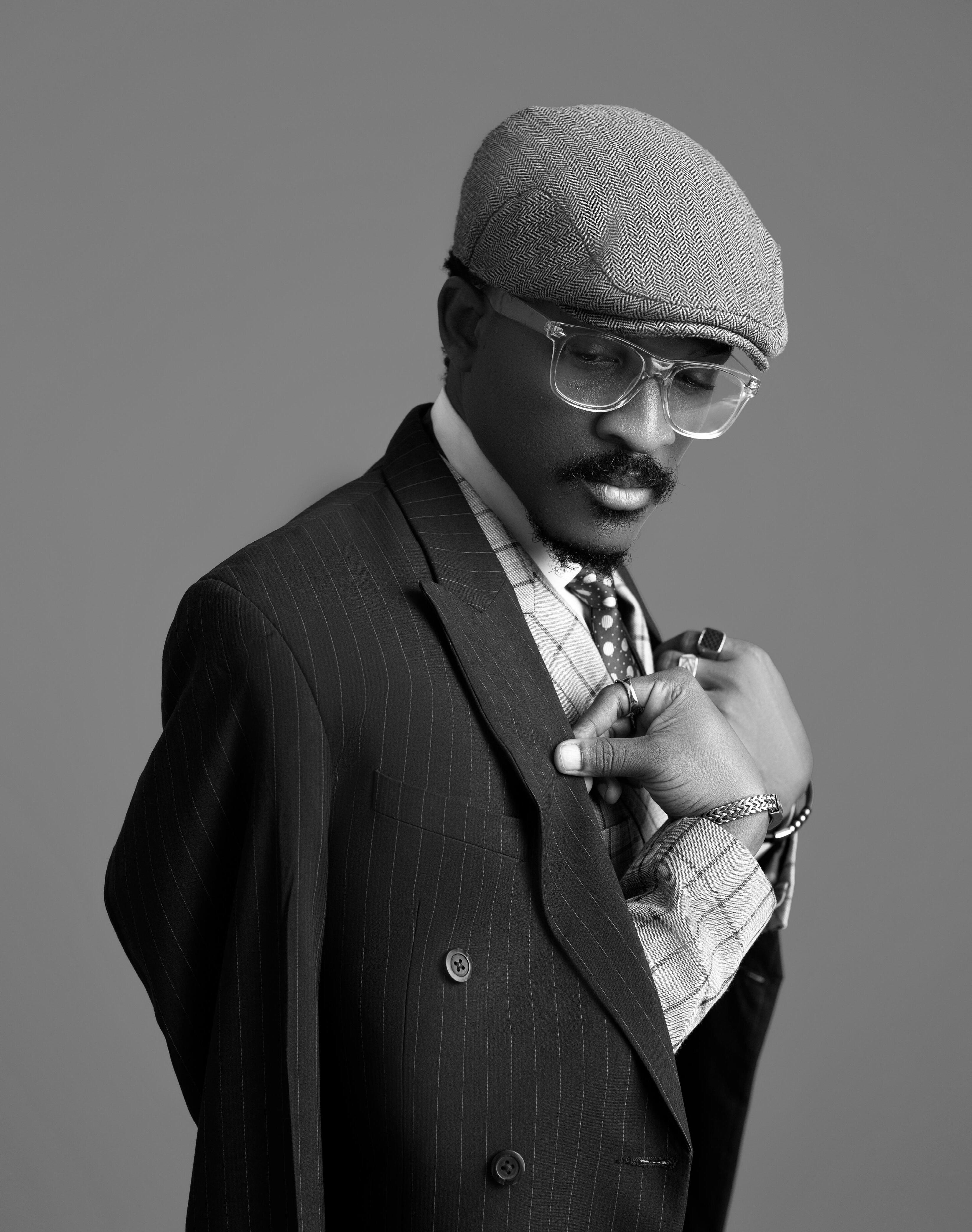
You have a background in engineering. Seeing the vast array of things you could do, from acting to singing, modelling, and so on, did you always know you’d leave engineering for showbiz someday?
Not at all. I come from a family of engineers, so it was almost like a no-brainer. But then, life happened, and here we are.
How far back can you trace your involvement in the arts? Was it the generic drama group in the church story? Not the drama group, but I know that I’ve always wanted to. In fact, it was dance for me actually; dance was and still is my first love. There’s something in the works for that, just to shock everyone. Expect something interesting; it might be a dance movie or just something to do with dance. Acting came much later; I had been practising as an engineer for two to three years
before acting happened. As for singing, it was a while ago. I wrote the track and the verse and sang on it (a production of mine) as well. It was an interesting piece. I made my director’s debut two years ago, and I am still trying to see what we can do with that. I also sketch; I used to be really good at it until acting came along and snatched everything.
Talk to us about method acting and how you understand your character.
I’m not sure anybody in this part of the globe operates in that or remotely close to it because of how intense it is. It is a type of acting that requires so much to get into that space because you have to lose yourself completely, and that can be quite mentally draining. If you’ve seen the movie, The Theory of Everything, the actor
PAGE 8 COVER
THEWILL DOWNTOWN • www.thewilldowntown.com VOL 3 NO. 28 • JULY 09, 2023
who played that part is one of the actors I respect globally because of how much work he puts into each character that he portrays. That’s what method acting is. You can’t take on too many projects because of how deep it is. It is very mentally draining, so it must be worth it for you to engage that dimension, then come out of it, and keep doing all that back and forth. To do it back to back is almost impossible. Method acting is too intense, and by the way we work here, it’s almost impossible to do that because you are on set today finishing a project; some people are jumping on the next project the same day, others the next day. You must give yourself some space to detox from the previous character before you can get into another character and immerse yourself completely. That’s the sensitivity of method acting. When Angelina Jolie played the character in Salt, it took her about six months to detox from that character. It’s crazy because it can mess you up as an actor. There’s a spiritual element in what we do because these are creations that someone has created, and you have to live out these people’s lives, so it’s deeper than we think. What we do is one of the most spiritual works on earth because of the different dimensions we have to engage to bring the character to life. And that’s the reason why you won’t see Shawn Faqua in every film because of how intense and the amount of work that goes into each character. And the feedback is also very clear and encouraging because people are watching; people know. People say to me, “Every time I see Shawn Faqua in the credits, I know that I must see the film.” It’s because they are not seeing the actor in me; they are seeing the character because there’s always something that must be different. And I’m very intentional, so it’s not just by mistake. So it’s either the accent is changing, the look, mannerism, I must be consistent, because that’s another thing, the continuity once you’re in character. I often have to pay my own continuity person on set because the person doing continuity might not remember, probably because they are looking at so many other things. Characterisation for me is everything, I put it in each role, and I must remember. Like in Soole, where the character has a limp, so you’re always in that place where you’re limping, so sometimes when the director yells, “Cut!” I’m still limping. It was hard because even when I wasn’t on set, I was still limping. I have to be there so it’s believable first for me before even those who are watching because if I don’t believe it, the viewers will not believe it.
Oftentimes when I’m asked to spot the difference between Nollywood and Hollywood, I think that’s exactly how I feel. When I watch Nollywood, I know that it is acting. Whereas, with Hollywood, sometimes you can’t even tell reality apart from what’s in front of you…
Absolutely, you are right.
Is that type of acting teachable, and why are we not exactly looking in that direction?
Of course, it is teachable, very well so. I studied with some of the greats, and I was privileged to do that in Hollywood, so I know that that’s what is obtainable there. One of those days in class, I had to point out to the lecturer that all the things he’s teaching are ideal, but from where I come from, it’s not feasible. It’s not sustainable because you have to break down each scene; that’s crazy. Do you know how many scenes are in a movie? First of all, what time do you even have to break down the scene? Because you’re not just breaking it down for your character alone, you are also doing it for the character you’re sparring with. So for me, when I’m studying the scenes, I’m studying the lines of the person whom I’m in the scenes with. I have to understand what their thinking is in the scene and their motivation. What do they want to get out of this scene? Because that way, it helps my character. It is teachable. My problem with it in this part of the world is if it’s feasible or sustainable because of the rate at which we shoot. As I said, you are finishing a project today, and the next day, you are jumping on another one. What time do you have to break down the scene of the character? That’s why I respect Nigerian actors so much; you have no clue. The work rate is incredible. I tried it at some point, but I couldn’t. Because you have to be careful not to be the same character in every film, people
take note of that, and you will easily get typecast. You must constantly train yourself and your mind; there must be something that you are garnering, some sort of knowledge. Thank God there is knowledge on the net these days because once you don’t expand your knowledge, you have the same nuances, and same responses in every film, because you’re not travelling, you’re not getting new experiences, and it’s a very dangerous place to be as an actor. You must take out time to travel, shut down, go somewhere else, observe, and learn new things, new skills, and new languages. Those things help you when the time comes to portray a certain type of character.
The House of Secrets was out less than a fortnight ago. You played the role of a military man in love, doing right by his woman until his death. What was filming that like?
It was interesting, actually, because I think I’ve only done one or two psychological thrillers since I came to the industry, stuff that gets you in terms of plot twists. I’m a sucker for great stories. Once the story is right, I’m in. And that’s where I pray for the industry to get to because we have great production now, unlike in the past, in the 90s, when we were just starting out with home videos. They had amazing stories, but of course, the production quality was as great as it is now. Now it looks like the reverse is the case because we now have good production quality, but the stories are still struggling because there is not enough time allocated to the stories because the producers want a quick turnover. It’s not like they don’t know, some of them know what they need to do, but they are working with money. You need to give back the funds that you have collected. We don’t have the resources in terms of time like Hollywood has that they can spend three to six months developing a story. And story development is where the film is. Once you have that on lock, the film will follow. For me, the story is right, and that’s what The House of Secrets offered when the director reached out to me. I read the story, and that was it. It was easy to put in certain characterisation for the character, Panam. Also, it was a period piece as well. I love that.
In an interview, the filmmaker, Niyi Akinmolayan, talked about how he chose you for the lead role in The House of Secrets, having watched you audition for a role in the past that you didn’t get. Auditioning and not getting the role is part of the job, isn’t it? Of course, it is. It’s like saying you want to get the job but don’t want to go through the interview process. Maybe your father is Dangote or the person who owns the company. Even A-list Hollywood actors audition. Of course, those that have paid their dues won’t be put through the same rigours as the others. They just want you to read, to hear how you sync with the other characters. They want to see a screen test to check chemistry and other things. But it’s important that actors understand the importance of auditions, whether it’s a closed door or an open call. Even for established actors, sometimes it helps you when you’re in the same space as your colleagues. It helps you engage where you are as an actor. You might feel that you are the best thing since sliced bread, and someone comes and floors you, and you know you need to sit up. So it’s a healthy competition. As he (Niyi) said, it doesn’t mean that you’re not a great actor if you don’t get it; it only means you don’t fit in at that time, or something happened. But they know. For some certain reason, they might go with other people, maybe for their commercial appeal or the numbers, but when the serious project comes, they know who to trust with it.
Speaking of recent projects, you directed and produced Unveiled, a faith-based web series. With season 2 in post-production, tell us what to expect. More drama, we have a larger cast. Season one was made for the web, so this story is broader. We have a solid ensemble. So we’re just hoping that it will hit the mark, which is why we went the extra mile for it. Sometimes faith-based projects are sorted in some category, but it shouldn’t
be because we’re living life from different perspectives and different prism, so it’s important that people understand, especially for faith-based people, it’s one life that Christ came to die for, so there’s no separate life, there’s no “my business life,” “my work life,” “my family life,” it is one life, so we don’t try to live like a double agent. It’s the same life, so we want to see in this second season how the characters live out that life in family, business, and the marketplace and how they can navigate the challenges that life throws at everybody. But as of right now, as believers, how can you deal with that, and what are the responses like?
Some people would say that there is a contradiction between being a believer and acting in mainstream Nollywood because sometime early this year, Mike Bamiloye, founder of Mount Zion Films, condemned today’s Nollywood for some of their conduct on the screen. What do you have to say about combining your beliefs with a very secular industry? There’s no separate life from the one Christ died for. It’s the same life. The problem is our responses. What are you doing in the space that you’re in? Are you behaving like a believer or an unbeliever? That’s where the problem is. It’s not what people see on screen; it’s the interactions that take place behind the scenes. And that’s what Christ said; he said, “I didn’t come for those who are well. I came for the sick.” It’s the person who’s sick who needs a doctor, and that’s why you would find Him with the tax collectors, businessmen, prostitutes, and charlatans because those are the people who needed what he was carrying. People were self-righteous, the Pharisees, they always came for him, and he always told them the truth. Indeed we are the light of the world; we are not the light of the church. We have so many lights shining in the church nowadays, and that’s why there’s a problem everywhere. The light you are given is for the world, for the marketplace; that’s where you need it. Else, what’s the impact? What’s the difference? We are meant to impact lives and souls, so you’re going out to fish for men. Where do you find them? In the marketplace, the mainstream, that’s where they are. And in that mainstream, you are also garnering some sort of visibility that is necessary for the work. There are people who are mainstream, but now the Lord has arrested their hearts, and they are doing the same work even for the Father. God is a master orchestrator. He knows how to turn the heart of those even in the mainstream to begin to do his assignment. Some people feel like they deserve it, that self-righteousness. He won’t use you because you will not be able to accommodate the people in that space because you see them like they are coming to contaminate you. There’s a veil over your head, your eyes can’t see beyond your nose, and therein lies the problem. But when you’re in that space, you’re seeing the challenges and temptations that exist in there. The prayer at that time is that “Lord preserve me” so you’re not also taken away by it. But the wisdom is that you are there as a light of the world and salt of the earth to preserve. To shine the light in the midst of the darkness because it’s such a dark space we’re living in now, I’m sure you’re already aware. There is so much darkness in the world; it’s incredible. Any small light, people will run and follow you. That’s why people are being deceived. It’s easy to deceive people these days. You can just be a false or a fake version, and people will run and follow you because everybody is looking for a way out. So why are you waiting for them to come when you are supposed to go to them?
We spoke to Jimmy Odukoya, a fellow pastor in the industry, last year when he starred in The Woman King, and he talked about how he’s very picky with the roles that he gets. You’ve also mentioned that the holy spirit directs your path in what roles you should say yes to.
Absolutely.
How does that work?
I don’t know [laughs]. Interestingly enough, it might come as a shock; sometimes there are roles that I would reject, Shawn Faqua would not do those kinds of roles, and the holy spirit would
PAGE 9 THEWILL DOWNTOWN • www.thewilldowntown.com VOL 3 NO. 28 • JULY 09, 2023 COVER
“The only advice I would say is you have to know who you are. It will be your saviour in times when it matters because there’s a huge war on identity now in this generation.”
say, ‘No, you’re going to do it.’ There are some roles I had to be on a three-day dry fast while shooting the film. It was that deep. But you would never know about this. Just because He wants to incubate you regardless of what you’re doing because there’s a reason why He sent you there. He understands the challenges, and He knows the dangers, but He has empowered His children to establish His root there. Sometimes it can be for one person on the set or one of the people on the project itself, not even for the film, that he wants to save. The way the holy spirit works is amazing. He could send you there because there’s someone on that set who has
been crying to Him for help, and I’d get there, and He’d direct my steps to them, and we begin to pray, or we just share a word of knowledge. And somehow, you become very grateful that you obeyed, just because of one soul that has been restored into his kingdom. Once you understand that you are a vessel, the clay or pot doesn’t argue with the potter, so a vessel must be intentional. He will tell you where and how to go, what to eat, what to wear. He is that conversational. If He says ‘go here,’ often it doesn’t make any sense. But obedience is never predicated on understanding when it comes to the work of the Lord. You can’t say, ‘Let me first fully understand it before I now obey you, Lord,’ you’re fooling yourself; you’re not ready for the work. You must first engage. It’s in the process of engaging in obedience He will now begin to unveil to you the reason why He told you to do it. It’s like when Jesus told Peter to walk on water. Imagine if Peter had said, ‘Lord, please tell me how it’s going to happen.’ He didn’t. With foolish obedience, he stepped out of the boat and began to walk on water. That’s how the journey in Christ is. And, of course, He will never give you beyond what you can handle because, trust me, the temptation on this mountain is incredible. The way Christ has His people, the enemy also has his people, and they are more intentional and aggressive than we are. They understand the agenda much more than we do. So the things you see on screen and overlook as just being film, it’s not just film. Those who don’t know think it’s just film. The primary purpose of the film is to push an agenda, and those who know have mastered it. Every other thing is secondary. That’s why you see what Hollywood is doing; they are pushing an agenda, and they are very intentional.
Filmmaking is a powerful tool for social education.
Are there any more projects in the pipeline that your fans should be looking forward to?

Oh, absolutely, quite a number of them. We just wrapped principal photography for Osato. It’s a good project. There’s also one we shot in collaboration with a UK production company. We are going to see more of that collaborative work happening between Nollywood and the UK film industry. I think this is just the first of that. It’s a rom-com as well. Shina is also coming, produced by Kayode Kasum. Funmilayo Ransom-Kuti is coming as well. Everyone should look out for that. There are also a couple of works that I am not permitted to say yet.
You are the convener of the White Harvest Organisation. Tell us about what you guys do. We are a community of believers who are awakened to their primary purpose on earth, which is to propagate love and the gospel of Christ Jesus in the marketplace, and we do this by establishing His will here on earth just like it is in heaven. All we do is take the blueprint, just like in the Lord’s prayer, where it says, ‘thy will be done here on earth as it is in heaven.’ So, in other words, there’s a blueprint for the earth already in heaven, and all we do is copy and paste. So we have different vehicles, we have content, outreaches where we visit prisons, schools, and
hospitals to engage the souls of men. It’s very important. Because God says, ‘If you love Me and hate your fellow man, you’re a liar.’ You cannot claim to love God and not show that love to your fellow man; it’s not possible. That is the true religion. We have regular events and welfare, and we have workshops where we engage and train leaders in the marketplace—entertainment and arts, business places, for people to know more about finances and help to breed that spirit of excellence in the marketplace.



What piece of advice do you have for people trying to combine their faith with the very secular world of arts and entertainment?
The only advice I would say is you have to know who you are. It will be your saviour in times when it matters because there’s a huge war on identity now in this generation. So if you’re still not sure or confused about your identity, don’t even bother coming in. But when you are convinced about who you are, nothing is going to hit you. And that’s the confidence you engage in because, indeed, the truth is we need more people to come into this industry, especially now, there’s a lot of work that is happening, and there’s more good quality work that’s coming. There’s more funding coming in as well from outside the country. There’s a lot of interest in our film industry now because of the content we have. We haven’t scratched two percent of our content, and there are so many stories that we haven’t told. And someone has to tell them. So it’s important that we are the ones telling it because if these guys come from outside, they will come and tell your stories, and they will water it down or even change it up and give it back to you. So we must tell our stories ourselves with the best of hands, of course. So there are a lot of opportunities, but we don’t have enough actors. By the time we start doing really high blockbuster movies with a cast of 10,000 people, there’s not enough. There are not too many production companies that can handle that scale. We need more hands. Now is the best time for anybody looking to come into the industry, but you must know who you are because it’s a war out there, and everybody is vying for the next person who is ignorant. They are just there waiting to latch onto you and indoctrinate you, so you must understand whose side you are on so that you can engage with that clarity. You can’t be on the fence because even Christ said, ‘If you are neither hot nor cold, I will spit you out of my mouth.’ So it’s either you hold God strong, or you hold the devil strong because when push comes to shove, it’s the people on the fence that get affected first. That’s why it is wise to hold God strong.
VOL 3 NO. 28 • JULY 09, 2023 PAGE 10 THEWILL DOWNTOWN • www.thewilldowntown.com COVER
(1)
Decorating on A Budget
HOW TO ACHIEVE HIGH-END LOOKS FOR LESS
BY DORCAS AKINTOYE
(3) INVEST IN KEY PIECES
Decorating
your home can be exciting and challenging, especially on a budget. If you want to create a beautiful space that reflects your style but don’t want to spend too much to achieve it, there is no need to worry; achieving a high-end look is possible for less. Being on a tight budget doesn’t mean you have to compromise on style or quality. Being creative and resourceful is one of the keys to decorating on a budget. We have a lot of ways to achieve a high-end look without spending a lot of money. The most important thing is knowing where to shop, what to look for, and how to put it together.
It doesn’t matter whether you are a first-time decorator or a seasoned pro; these tips will help you transform your space into a stylish home without breaking the bank.


START WITH A PLAN
You need to have a plan before you begin any decorating project. Planning will go a long way in helping you stay focused and, most importantly, prevent you from overspending. Start your planning by identifying the rooms you want to decorate, then set a budget for each one. After you’ve got a clear idea of what you want to achieve, start looking for inspiration. Check out websites like Pinterest or even Instagram to get decorating ideas that can help you create a cohesive look.
(2)
SHOP SMART
There are so many ways to save money when shopping for home decor. First of all, consider going for used or refurbished items. There are many thrift stores and online marketplaces to find high-quality items at a fraction of their original cost. You can also check home decor stores for sales, discounts, and clearance items.
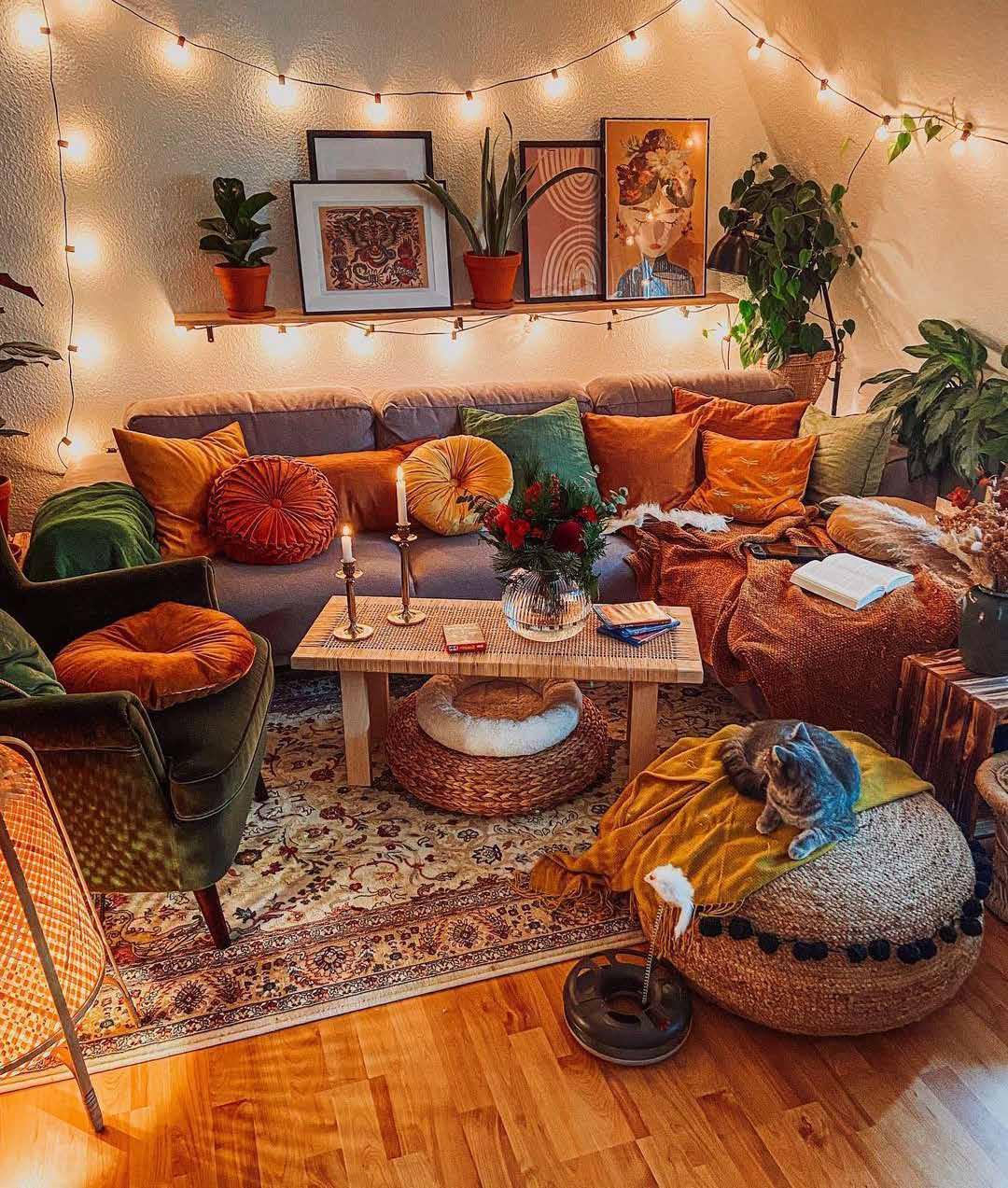
Buying low-cost items can be so tempting, but at the same time, investing in a few high-quality pieces can make a significant difference in the overall look of your home. Try investing in statement pieces like a quality sofa or even a unique piece of art to make a statement.
(4) USE COLOUR STRATEGICALLY
The impact of colours on the look and feel of a room cannot be underestimated. Using a neutral colour scheme while adding pops of colour through accessories like throw pillows, curtains, and artwork is an excellent way to create a high-end look without breaking the bank.
(5) GET CREATIVE WITH LIGHTING
Lighting can make or break the ambience of a room, depending on how well you can get creative with it. Consider mixing different lighting sources, including table lamps, floor lamps, and overhead lighting, to create a warm and inviting feel. To create a more luxurious atmosphere, you can use dimmer switches.


(6) ACCESSORIZE THOUGHTFULLY
Accessories can help add finishing touches to a room, but you must use them thoughtfully. Go for items that complement your colour scheme and style and avoid overcrowding. Adding a few statement pieces like a unique vase or a decorative tray can add interest without overwhelming the space.


PAGE 11 THEWILL DOWNTOWN • www.thewilldowntown.com VOL 3 NO. 28 • JULY 09, 2023 D É COR
FASHION FOR ALL
Brands Embracing Diversity And Inclusion in Nigeria
BY IKENNA CHURCHHILL
Nigeria’s fashion industry has shifted towards diversity and inclusion in recent years. More and more brands are embracing the idea that fashion should be for everyone, regardless of their size, shape, or background. These brands are breaking down barriers and challenging traditional beauty standards, creating a more inclusive and diverse fashion industry in Nigeria.
Nigeria has many amazing fashion brands and designers pushing effortlessly to make a name for themselves and take our fashion across the globe with their unique designs and creativity. Several brands in Nigeria fully embrace diversity and inclusion in their designs for their brand’s benefit and growth.
Here are some fashion brands in Nigeria that are embracing diversity and inclusion.
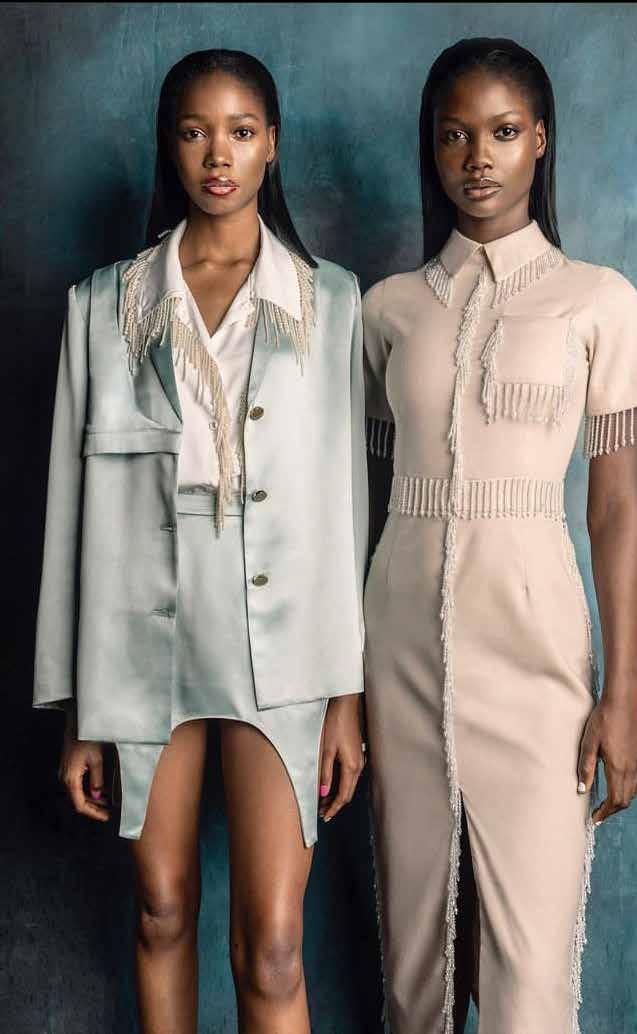
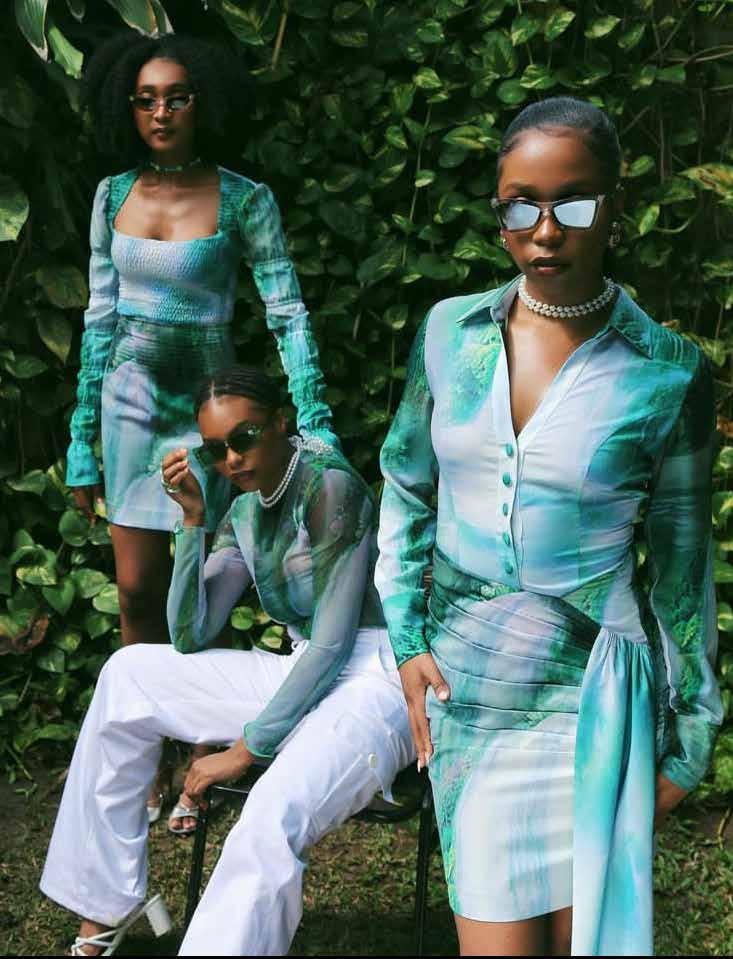
1. MAI ATAFO
Mai Atafo is a Nigerian fashion brand committed to promoting diversity and inclusion in the fashion industry. The brand’s designs are created with the philosophy that fashion should be for everyone, regardless of their size, shape, or background.
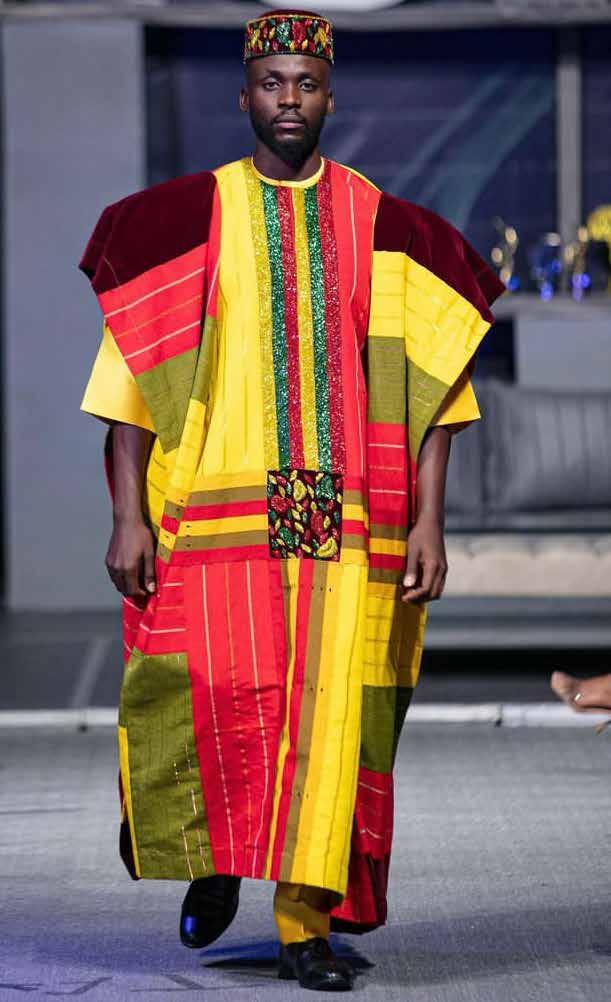
Mai Atafo’s commitment to promoting diversity and inclusion has earned it a reputation as one of Nigeria’s most socially responsible fashion brands.
3. MAKI OH
Maki Oh is a Nigerian fashion brand founded by Amaka Osakwe in 2010. The brand uses traditional African textiles, hand-dyeing techniques, and modern, contemporary designs. Maki Oh has been featured in several international fashion shows and worn by celebrities such as Beyoncé and Rihanna.

2. LISA FOLAWIYO
Lisa Folawiyo is a Nigerian fashion brand founded by Lisa Folawiyo in 2005. The brand uses traditional West African textiles like Ankara and creates modern, contemporary designs with these fabrics. Lisa Folawiyo has been featured in several international fashion shows and has won numerous awards for their innovative designs. The brand graces its name by ensuring they collaborate with different cultures to promote diversity and inclusion.
VOL 3 NO. 28 • JULY 09, 2023 PAGE 12 THEWILL DOWNTOWN • www.thewilldowntown.com FASHION
FASHION
4. ORANGE CULTURE:
Orange Culture is a Nigerian fashion brand known for its genderneutral designs. The brand’s designs are created with the philosophy that fashion should be for everyone, regardless of gender. Orange Culture’s commitment to promoting diversity and inclusion has earned it a reputation as one of Nigeria’s most innovative and socially responsible fashion brands.
6. MAXIVIVE
Maxivive is a Nigerian fashion brand that Papa Oyeyemi founded. The brand is known for its avant-garde designs and commitment to pushing boundaries in the Nigerian fashion industry. One of the things that sets Maxivive apart from other Nigerian fashion brands is its focus on gender-neutral fashion. The brand’s designs are often androgynous, focusing on oversized silhouettes and unconventional shapes. Maxivive’s commitment to gender-neutral fashion has helped to challenge traditional gender norms in Nigeria. It has made the brand a favourite among young people who are looking for fashion that is both edgy and socially conscious.
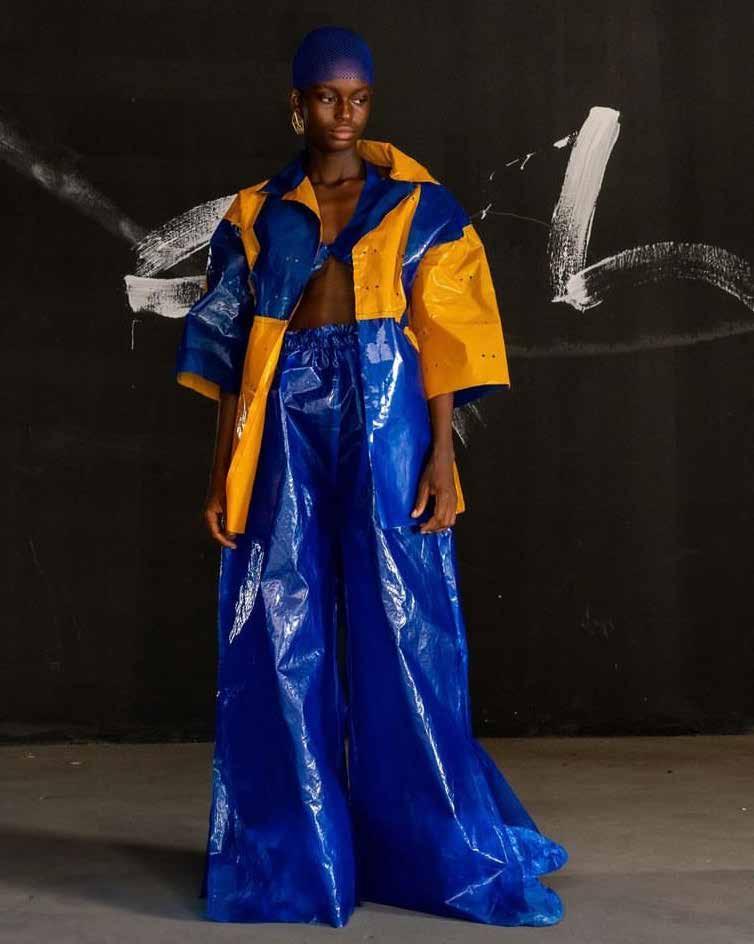
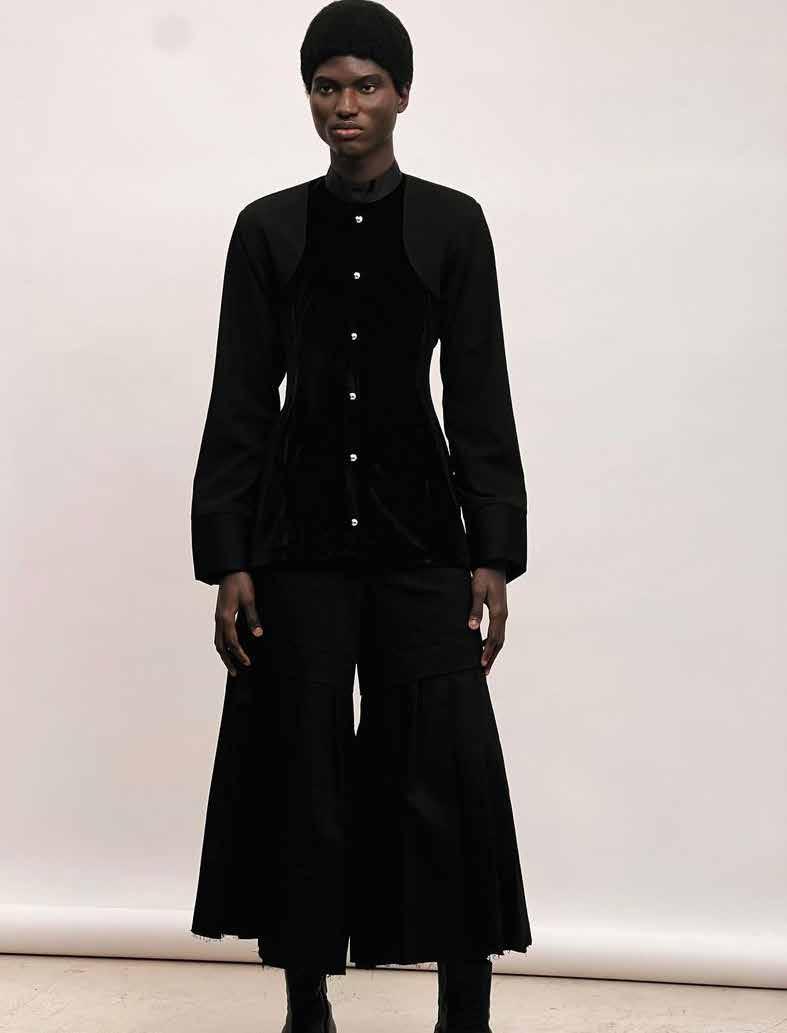
Maxivive is also known for its commitment to sustainability and ethical fashion practices. The brand uses recycled materials in many designs, and Papa Oyeyemi has spoken out about the need for the fashion industry to be more environmentally responsible. Maxivive’s commitment to sustainability has helped position the brand as a Nigerian fashion industry leader and a role model for other brands looking to become more socially responsible.
5. TTYA
TTYA (Taller Than Your Average) is a fashion brand founded by Irene Agbontaen in 2013. The brand is known for creating clothing for tall women, with designs inclusive of all body types and sizes. TTYA has been featured in several international fashion shows and worn by celebrities such as Jourdan Dunn and Serena Williams. TTYA is one brand that goes beyond just making designs for everyone. They influence other brands thanks to Irene, pushing for our culture to be seen and heard.
7. IAMISIGO
This brand is known for using traditional African textiles and its commitment to ethical production. The brand is inclusive and celebrates African culture.
8. ANDREA IYAMAH
This brand is known for using bold prints and its commitment to empowering women. The brand is inclusive and caters to women of all sizes.

In conclusion, the Nigerian fashion industry is shifting towards diversity and inclusion. These brands are breaking down barriers and challenging traditional standards, creating a more inclusive and diverse fashion industry in Nigeria. With events like Lagos Fashion Week and Africa Fashion Week Nigeria also committed to promoting diversity and inclusion, the future of the Nigerian fashion industry looks bright.
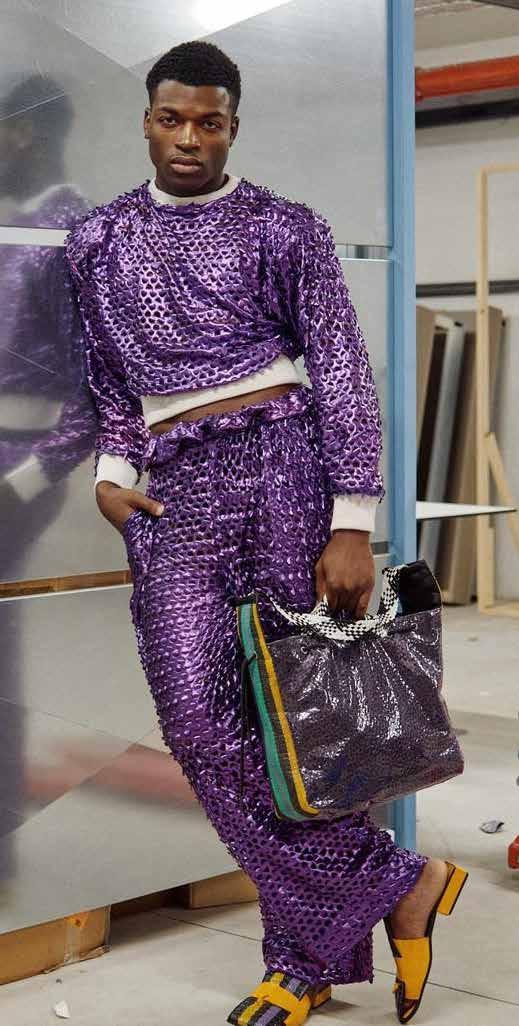
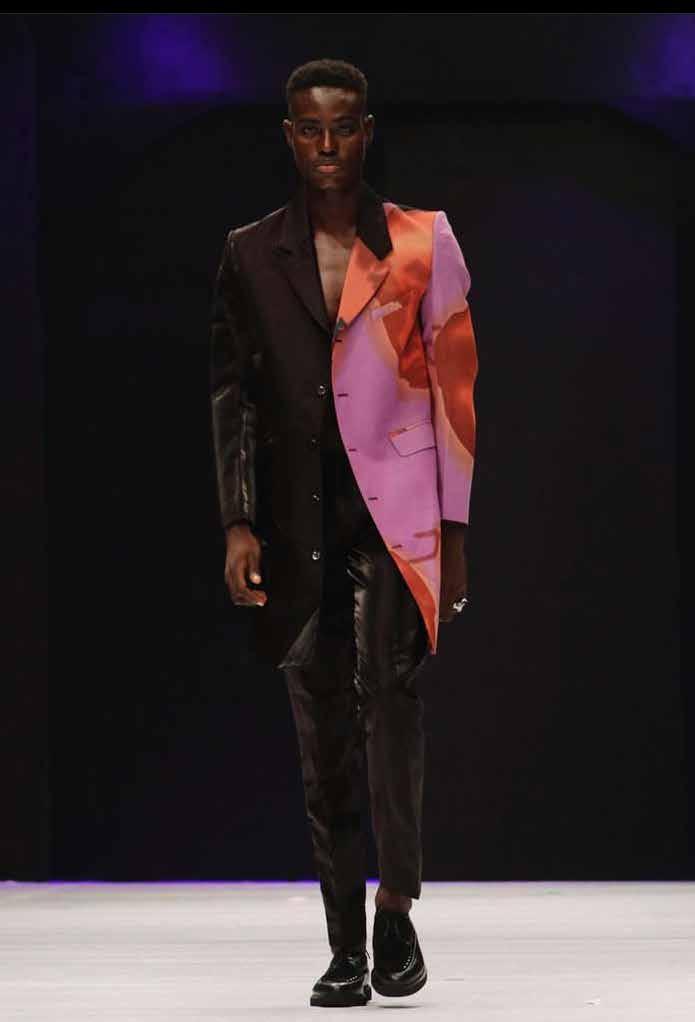
PAGE 13 THEWILL DOWNTOWN • www.thewilldowntown.com VOL 3 NO. 28 • JULY 09, 2023
Wumi Jubril Spotlight on
BY KEHINDÉ FAGBULE
helped me tailor my sales approach accordingly.
Building and maintaining relationships are also paramount in the hospitality industry. I nurtured partnerships with local travel agencies, corporate clients, and event planners, and provided personalised attention to their requirements.
Overall, my experience as a sales representative at Sheraton Hotels and Resorts in Nigeria and Gambia was a challenging yet fulfilling journey. It taught me the importance of cultural intelligence, customer relationship management, and effective sales techniques. It laid the foundation for my career in the hospitality industry and provided me with valuable skills that I continue to leverage in my current roles.

Times are very different now. You are the CEO of The Seattle Residences and Spa, the flagship of the SRS Collection, a luxury hospitality group. What are some of the major differences between the hospitality industry then and now?
Formany countries globally, the wellness and hospitality industry is one with hefty potential to not just provide locals with relaxation options but also double as a tourism cash cow, generating a fortune in national revenue—a viable economic model that has propelled several countries to self-sufficiency. In Nigeria, however, although the wellness business is a largely privatised affair, the raw potential of the industry to transform the country’s fate for the better remains untapped.
Having honed her hospitality skills at Sheraton Hotels home and abroad in neighbouring African countries, ace hotelier, Wumi Jubril’s impact in the hotel space cannot be overstated. Courtesy of her vast experience running world-class built-for-relaxation establishments, the lifestyle escape connoisseur is the CEO of the Seattle Residences and Spa (SRS Collection), a leading luxurious residence in the commercial hub of Lagos and has since become an authority on all things wellness and hospitality. Speaking with DOWNTOWN, she shares her expert insights on the potential trillion Naira industry and its present shortcomings, what constitutes a luxury wellness centre, and the unique offerings of the Seattle Residences and Spa.
Having grown up in a family of doctors, you earned your masters in International Business Management from the International Business School, after a bachelor’s degree in Chemical engineering in Budapest, Hungary. How did you get into the wellness and hospitality industry?
It began 13 years ago when I realised how much I loved the whole process involved in the art of catering to people’s needs. Coming from a family where everyone is involved, one way or another, in healthcare or hospitality, I would say I naturally developed a passion for it. I started with the Sheraton Lagos Hotel in Ikeja as a trainee where I had amazing mentors, and I worked in the sales department for about two years, after which I was nominated to represent Sheraton Gambia in Nigeria. I did this for about a year and then got an offer to head Business Development (Outbound) for West Africa. It was all exciting, and I learnt so much. The experience I gathered definitely led me to this point with The SRS Collection. I had wonderful mentors in the process of my growth, a lot of whom I am still very much in touch with.
At the beginning of your career, you were a sales representative at Sheraton Hotels and Resorts, Starwood’s flagship brand, here in Nigeria and Gambia. Can you describe what that experience was like, your foray into the hospitality industry and how you sold it to Nigerians? Certainly! My experience as a sales representative at Sheraton Hotels and Resorts was truly enriching and formative. It was my first foray into the hospitality industry, and it provided me with valuable insights into the dynamics of sales, customer service, and the unique Nigerian market. As a sales representative, I was responsible for promoting the brand to potential customers in Nigeria and Gambia. I engaged in direct sales, relationshipbuilding, and networking to generate leads and convert them into bookings. It was a fastpaced environment where I had to be proactive, responsive, and adaptable to the changing needs of customers. One of the key aspects of my role was to effectively sell the Sheraton Hotels and Resorts brand to Nigerians. I learned that understanding the local culture and customs was crucial in building trust and rapport with potential customers. I made sure to research and familiarise myself with Nigerian business practices, etiquette, and preferences, which
As the CEO of a foremost luxury hospitality group, I am well aware of the major differences between the hospitality industry then and now. Times have indeed changed, and the hospitality industry has evolved significantly. First, technology has transformed the hospitality industry in unprecedented ways. Today, we have advanced property management systems, online booking platforms, mobile apps, and other technological tools that enhance guest experiences, streamline operations, and improve efficiency. These advancements have revolutionised how we interact with guests, manage reservations, and handle guest services. Furthermore, guests’ expectations have significantly changed over time. Today’s guests seek personalised experiences, are highly reliant on online reviews and social media and demand seamless digital integration throughout their stay. They expect convenient online bookings, fast WiFi, mobile check-ins, and other modern amenities. Meeting these evolving guest expectations has become a top priority for luxury hospitality providers like The Seattle Residences and Spa. In addition, the global pandemic has brought health and safety to the forefront of the hospitality industry. Today, guests expect stringent health and safety protocols in place, such as increased cleaning and sanitisation, contactless services, and social distancing measures.
As the CEO of The Seattle Residences and Spa, I prioritise the health and safety of our guests and staff and ensure that we strictly adhere to all recommended guidelines and protocols. No matter the dynamics, I am committed to adapting to these changes and leading my team in providing exceptional guest experiences in this ever-evolving industry. Globally, mental wellness always takes a backseat to physical medicine. In your experience in the wellness industry in Nigeria, what are some of your biggest takeaways from Nigerians’ attitude around wellness of the mind?
As someone with experience in the wellness industry in Nigeria, I have observed that Nigerians often prioritise physical health over mental wellness. However, there are some key takeaways from Nigerians’ attitude around wellness of the mind. First, there is a general lack of awareness about mental health and its importance in Nigeria. Mental health education and awareness campaigns are not as widespread as those for physical health, and many Nigerians lack basic knowledge about mental health conditions, symptoms, and available treatments.
Also, Mental health is often stigmatised in Nigerian society, with misconceptions and negative attitudes towards individuals who experience mental health challenges. There is a prevailing belief that mental health issues are a sign of weakness or a result of spiritual or moral failings, leading to social exclusion and discrimination.
VOL 3 NO. 28 • JULY 09, 2023 PAGE 14 THEWILL DOWNTOWN • www.thewilldowntown.com FEATURE
While there is a growing awareness about the importance of mental wellness in Nigeria, there are still significant challenges that need to be addressed. Efforts to promote mental wellness in Nigeria should focus on increasing awareness, reducing stigma, improving access to mental health services, and integrating mental health into the overall healthcare system.

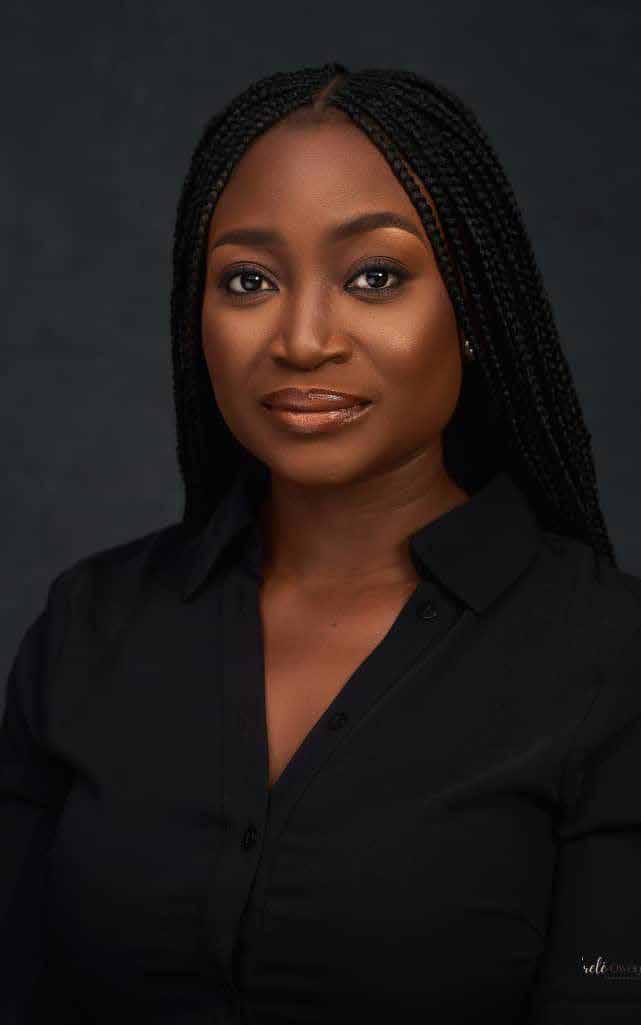
What are some of the shortcomings of the hospitality industry here in Nigeria?
The hospitality industry in Nigeria, like any other industry, has its fair share of shortcomings. One of the significant shortcomings of the hospitality industry in Nigeria is the inadequate infrastructure. Many hotels, restaurants and other hospitality establishments face challenges such as inconsistent power supply, unreliable water supply, poor road networks, and inadequate telecommunication infrastructure, which can impact the quality of services provided to guests.
Another shortcoming is the scarcity of a skilled workforce. Despite the potential of the hospitality industry in Nigeria, there is a shortage of skilled and trained personnel in various roles such as management, culinary, housekeeping, and customer service. This can result in a lack of quality service delivery, which may affect the overall guest experience. And lastly, price sensitivity among local consumers can also be a shortcoming in the hospitality industry in Nigeria. Many consumers have limited purchasing power, and price remains a significant factor influencing their choices. This can impact the profitability of hospitality establishments and their ability to invest in quality infrastructure, training, and services.
Addressing these shortcomings would require efforts from both the public and private sectors to invest in infrastructure, workforce development, regulatory frameworks, and industry standards to enhance the overall quality and competitiveness of the hospitality industry in Nigeria.
What makes a luxury wellness centre?
A luxury wellness centre is defined by several key elements that collectively create a premium and exclusive experience for individuals seeking health, relaxation, and rejuvenation. A luxury wellness centre must have top-notch facilities that provide a serene and aesthetically pleasing environment. This includes well-appointed treatment rooms, state-of-the-art fitness equipment, luxurious spa facilities, and serene relaxation areas, all designed to create a sense of opulence and comfort. It should also offer a wide range of holistic wellness programs that cater to different needs and goals. These may include personalised fitness plans, nutrition counselling, stress management techniques, mindfulness practices, and alternative therapies such as yoga, meditation, and acupuncture.
Furthermore, the staff at a luxury wellness centre should be experienced, skilled, and trained to provide
exceptional service. This includes qualified fitness trainers, nutritionists, spa therapists, and other wellness practitioners who are knowledgeable and passionate about their fields. Personalisation and privacy are crucial in a luxury wellness centre. Guests should be able to customise their wellness programs based on their preferences, goals, and health needs. A luxury wellness centre should be a place where guests can indulge in a premium wellness experience that nourishes their body, mind, and spirit, leaving them feeling rejuvenated, revitalised, and pampered.
What are some of the offerings that stand The Seattle Residences and Spa out from the rest?
The Seattle Residences and Spa stand out from the rest due to our luxurious accommodations, exceptional spa services, exquisite waterfront dining options, exclusive resident services, and prime location. These offerings create a truly exceptional experience for our guests, setting us apart as a premier choice for those seeking unparalleled comfort, luxury, and hospitality. At The SRS Collection, we provide an escape for business travellers and leisure seekers. We are saying, literally, “Come to us, and we will pamper you.” From the moment you walk in, it is completely fresh with our popular SRS signature scent; you walk straight into your apartment, led by the butler who would have been expecting you. Your welcome fruit platter, a welcome drink, and many other amenities/services which we offer on arrival of guests are served to you at your apartment on your arrival. We have just recently started to have our branded amenities with the Mont Company, which work perfectly for us, particularly due to their ecofriendliness.
Can you provide an insight into what the wellness trends of 2023 have been so far? What have you found that Nigerians are into and enjoy?
The year 2023 has already gone far and in Nigeria, wellness trends have been centred around holistic health, incorporating physical, mental, and emotional well-being. There has been a growing interest in fitness and exercise among Nigerians, with an emphasis on diverse workout options such as gym workouts, outdoor exercises, and group fitness classes. This includes activities such as yoga, aerobics, strength training, and dance fitness. Many Nigerians are focusing on healthy eating habits, including the consumption of locally sourced, organic, and whole foods. Traditional Nigerian foods such as plantains, yams, and local vegetables are gaining popularity due to their perceived health benefits. It’s important to note that wellness trends can evolve and change over time and may vary depending on individual preferences and cultural factors, but I believe that Nigerians are definitely on the right track with their wellness concerns.
You provide unwinding solutions to people. How do you unwind yourself?
I have now gotten to a point where I now receive spa treatments as gifts (Laughs). I actually do get some time to relax as, in the past, I travelled quite a bit. Ever since the pandemic, I have taken a lot more interest in spending a lot more time with friends and family. It’s always one thing or another… cycling sometimes, exploring new restaurants for wine and food tastings, or attending exhibitions. I can comfortably say that my friends have definitely played a huge part in helping me unwind.
Despite being blessed with arts and culture, what do you think is the reason why Nigeria is not cashing in on tourism?
First, I’d like to address the problem of inadequate infrastructure. Nigeria faces significant infrastructural challenges, including poor roads, inadequate transportation systems, and limited access to basic amenities such as electricity and clean water. These challenges make it difficult for tourists to travel within the country and experience our arts and culture. Nigeria has also faced security challenges for over a decade now, including insurgency, ethnic conflicts, and crime, which have affected our country’s image as a safe destination for tourists. Safety concerns
can discourage tourists from visiting our country and experiencing our arts and culture. Other abounding challenges also impede Nigeria from profiting from tourism, including a lack of tourismfocused policies and regulations, limited tourism infrastructure, lack of marketing and promotion, and other limitations. Addressing these challenges will require concerted efforts from the government, private sector, and other stakeholders to unlock the full potential of Nigeria’s arts and culture for tourism.
How can we change the entire hospitality landscape to turn us into a tourist destination in Africa?
To change the entire Nigerian hospitality landscape and turn the nation into a tourist destination in Africa, a multifaceted approach is needed. One of the critical factors in attracting tourists is the quality of infrastructure. The Nigerian government and stakeholders need to invest in upgrading and maintaining transportation systems, such as airports, roads, and public transportation. Nigeria has a rich and diverse cultural heritage that can be a significant attraction for tourists. Promoting Nigerian arts, music, dance, cuisine, and festivals can help create a unique and authentic tourism experience. This can be done through cultural exhibitions, cultural exchange programs, and collaborations with local communities to preserve and promote their heritage.
In addition, safety and security are major concerns for tourists. Enhancing security measures in Nigeria, such as improving law enforcement, implementing safety regulations, and addressing issues related to crime, corruption, and inter-ethnic conflict, can create a safe and secure environment for tourists to visit and enjoy their stay in Nigeria. By implementing these strategies, Nigeria can change its hospitality landscape and position itself as a top tourism destination in Africa, attracting tourists from around the world and boosting the country’s economy.
PAGE 15 THEWILL DOWNTOWN • www.thewilldowntown.com VOL 3 NO. 28 • JULY 09, 2023 FEATURE
BY BOLUWATIFE ADESINA

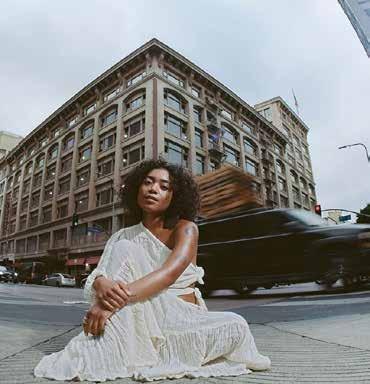
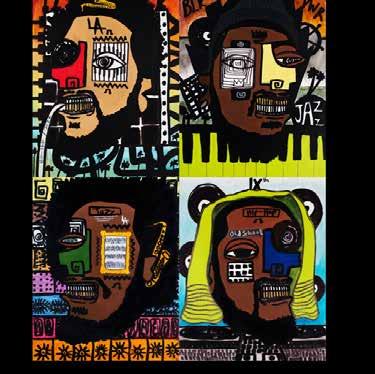
MOVIE REVIEW:
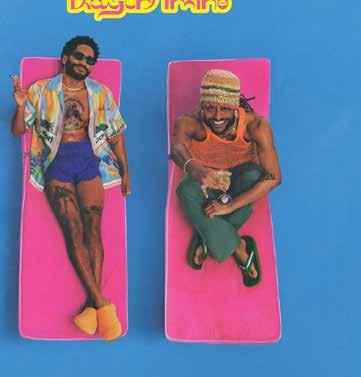
Indiana Jones and the Dial of Destiny


Armed with an obscene $295 Million budget, Indiana Jones and the Dial of Destiny hits the nostalgia button from minute one, with an almost creepy, fetishistic reanimation of Indy’s appeal. These reminders of what was are like constant elbows in the ribs, as if the filmmakers are saying, Remember this? You like this. It’s cameos from beloved characters, reminders of Indy’s wellknown idiosyncrasies (he hates snakes and enjoys punching Nazis), and do-overs of famous bits from the previous films. They try so hard to recapture the original charm but haven’t actually thought about what made it charming in the first place, and the result is a sloggy, dull sequel that’s more “Bogus Journey” than “Excellent Adventure.”
WATCH OF THE WEEK
THE HOUSE OF SECRETS
It’s been 15 years since we last encountered Indiana Jones, the whip-cracking archaeologist made iconic by star Harrison Ford, director Steven Spielberg, and George Lucas, who conceived of the story while seeking to update the classic adventure serial.


Audiences fell for the brainy, blunt and brave Indy in his globe-trotting adventures explored in the original trilogy, which started with Indiana Jones and the Raiders of the Lost Ark in 1981. Even the fourth instalment, arriving in 2008, Indiana Jones and the Kingdom of the Crystal Skull, was profitable and warmly received despite its goofy story.
It’s no surprise that in a filmmaking landscape where legacy sequels, or “legasequels,” roam the box office, the powers that be would take ol’ Indy out for another spin. Ford had returned to both Star Wars and Blade Runner to positive reactions, so it made sense to get the band back together for one more gig, to see if there’s any juice left to squeeze. Enter Indiana Jones and the Dial of Destiny, in which James Mangold takes the reins from Spielberg, continuing a burgeoning trend of older men in leading roles in action films. I call it “geriaction”. (Think of Ford (81), Tom Cruise (61), Keanu Reeves (58))
Mangold also co-wrote the script with Jez and John-Henry Butterworth, and David Koepp, and, true to the spirit of the legasequel, it’s about time travel — the story reflecting the nostalgic desire of both filmmakers and audiences to utilize movies as vehicles to revisit the emotions we felt when we were young. Lucas and Spielberg used “Indiana Jones” to recreate the feeling of their favourite childhood serials, and Mangold is tasked with delivering a film that brings us back to that feeling of falling in love with Raiders of the Lost Ark back in the ’80s. He approaches the task so literally that he seems to have overlooked the goal of simply making a great adventure movie.
It opens with a sequence that takes place toward the end of World War II, as Jones and fellow archaeologist Basil Shaw (Toby Jones) sneak around piles of treasure looted by Nazis, trying to liberate a few historically significant — and potentially powerful — baubles. Fast forward to the late ’60s, where Indy is a grumpy professor in New York City. He has no groupies, no wife and no child when a strange woman, Helena (Phoebe Waller-Bridge), ambushes him at a dive bar. She’s Indy’s goddaughter, the daughter of dear departed Bas, and she wants a mysterious dial crafted by Greek mathematician Archimedes that her dad stole from the Nazi loot train. Can Indy help her?
He doesn’t have much of a choice when they’re suddenly pursued through the city by two bloodthirsty blondes with buzz cuts (Boyd Holbrook and Olivier Richters). These menaces are in the employ of Dr. Jürgen Voller (Mads Mikkelsen), a shadowy figure from Indy’s past and a rocket scientist/former Nazi who needs the dial to “fix Hitler’s mistakes.” Yes, the plot itself is a rather overused pop culture meme.
Mangold is a slick filmmaker, and in Dial of Destiny, he alternates the nostalgia bumps and surprise cameos with extremely fast set pieces; the entire film feels like one long car (horse, boat, tuk-tuk) chase. All of the action sequences are capably crafted and still a total snooze. As Indy and Helena — and a precocious teenager (Ethann Isidore) they pick up in Morocco — dart around the globe retrieving various items, the bad guys chase them and relieve them of said items. Helena quips annoyingly, Indy grumbles predictably, and Mangold stuns us into a stupor with his perfectly competent filmmaking. It is a crushingly dull film until it becomes jaw-droppingly cartoonish in the final act. Perhaps a swig of something familiar in an air-conditioned theater will be just the ticket for a summer weekend. However, this dose of “Indiana Jones” is a disappointingly diluted version of this favourite hero that has the power to put a fan off the franchise forever.
Niyi Akinmolayan’s 2023 thriller House of Secrets attempts to become a hit by featuring a mix of star power and innovative storytelling techniques. The film offers a unique cinematic experience, using flashbacks and black-andwhite scenes to evoke nostalgia. The production design and cinematography set new standards for Nollywood, but the story falls short with some flaws.

The plot follows two timelines, set in 1999 and the present day, revolving around Sarah, an aged woman with lost memories. When her supposed family members approach her, she begins to uncover hidden secrets that involve a politician and a valuable document. The film impresses with its blackand-white aesthetic and well-executed camera work, but the script lacks cultural authenticity, relying solely on English without native tongues. Unfortunately, House of Secrets struggles to maintain intrigue, as some plot points
Rating: 5.5/10


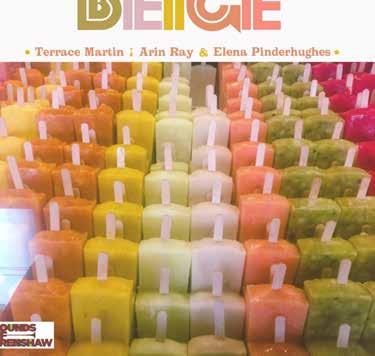
seems questionable, affecting the overall narrative coherence. Some performances lack depth, especially in the train scene, and the chemistry between the love interests remains lacking.
In the end, House of Secrets manages to excel in cinematography and production design but falls short in delivering a captivating storytelling experience. The film scores a 6/10, leaving room for improvement in crucial aspects like plot development and character motivations.
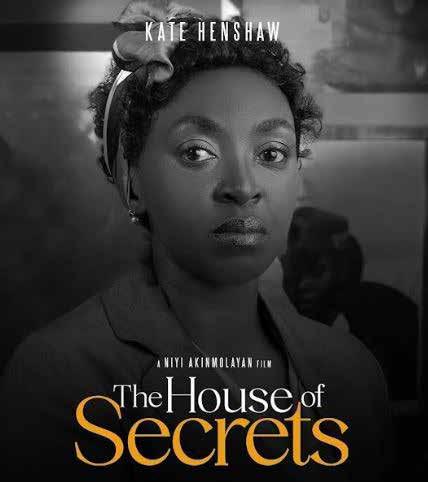
are too predictable, diminishing the suspense. Additionally, the portrayal of traitor characters
House of Secrets is currently streaming exclusively on Prime Video.
 Scan this with your camera to access the playlist (Apple Music)
Scan this with your camera to access the playlist (Spotify)
Scan this with your camera to access the playlist (Apple Music)
Scan this with your camera to access the playlist (Spotify)
THEWILL DOWNTOWN • www.thewilldowntown.com VOL 3 NO. 27 • JULY 02, 2023 PAGE 16
UMI - say im ur luv
Estelle_ Kanye West - American KAYTRAMINÉ_ Aminé_
Joyce Wrice_ KAYTRANADA - Iced Tea
Terrace Martin_ Arin Ray_ Elena
Omah Lay - come closer
J. Cole - January 28th
ODUMODUBLVCK_ Fireboy DML - FIREGUN
Joyce Wrice_ KAYTRANADA - Kaytra’s Interlude (feat.




































 BY DORCAS AKINTOYE
BY DORCAS AKINTOYE











































 Scan this with your camera to access the playlist (Apple Music)
Scan this with your camera to access the playlist (Spotify)
Scan this with your camera to access the playlist (Apple Music)
Scan this with your camera to access the playlist (Spotify)